
To



Jan Kitajewski, PhD
SWEENEY BASIC SCIENCES PROFESSOR
DIRECTOR, UNIVERSITY OF ILLINOIS CANCER CENTER
DEPARTMENT HEAD, PHYSIOLOGY AND BIOPHYSICS, UNIVERSITY OF ILLINOIS COLLEGE OF MEDICINE


To



Jan Kitajewski, PhD
SWEENEY BASIC SCIENCES PROFESSOR
DIRECTOR, UNIVERSITY OF ILLINOIS CANCER CENTER
DEPARTMENT HEAD, PHYSIOLOGY AND BIOPHYSICS, UNIVERSITY OF ILLINOIS COLLEGE OF MEDICINE
University of Illinois Cancer Center leadership, members and staff make each day an opportunity to discover and advance personalized treatment options for all patients. To assure our achievements will benefit all, we listen and learn from the communities we serve.
We hear the voices of those at risk of cancer, those experiencing cancer, and those who have survived cancer and seek vitality. Our greatest asset is the ability to hear the voices of our community and then bring innovators and catalysts of change to develop solutions.
The success of our approach is rooted in the exceptional team of researchers, clinicians, nurses, pharmacists, trainees, community health workers, volunteers, donors and staff who focus on health equity. Our mission sets our sights on assuring cutting edge research and precision oncology care, but it goes beyond this laudable goal. Our vision is to transform the equitable cancer care we provide into the standard of care for all in Cook County and across the nation.
Jan Kitajewski, PhD
The University of Illinois Cancer Center is positioned at the nexus of a worldclass research and educational institution – the University of Illinois Chicago, and its academic health enterprise – UI Health; and situated among a global city that is well-recognized for its innovative spirit and cultural diversity. The need for another National Cancer Institute (NCI)-designated cancer center in Cook County is unlike any other in the nation. NCI designation would bring transformational research to the communities and patients we serve across the nation’s second most populous county. The recognition and investment into the University of Illinois Cancer Center is certain to continue galvanizing ground-breaking discoveries, development of novel therapeutics and delivery of compassionate care with the focus of eliminating the devastating effects that cancer has on our neighborhoods and families. We strongly believe that the University of Illinois Cancer Center is ideally aligned across the university, health system, community partnerships, civic organizations and policymakers to lead in our collective mission to eradicate cancer and uplift our communities across Illinois and beyond.
Robert A. Barish, MD, MBA
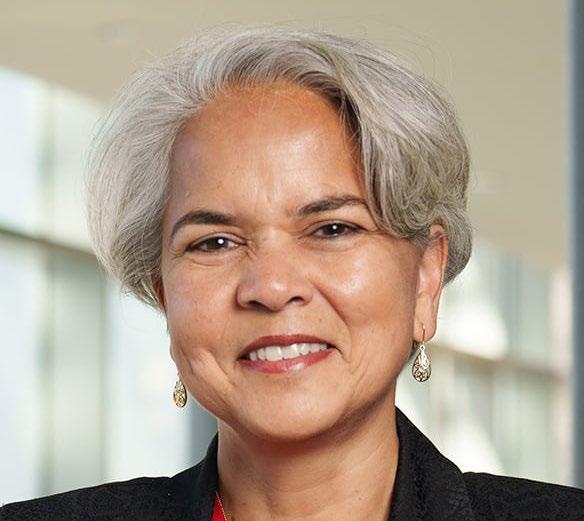
CHANCELLOR

MBA VICE CHANCELLOR FOR HEALTH AFFAIRS
UNIVERSITY OF ILLINOIS CHICAGO
The groundbreaking work of the University of Illinois Cancer Center in understanding, diagnosing, preventing and treating cancer, as well as revitalizing cancer patients and survivors, is integral to the success and continued momentum of the University of Illinois Chicago (UIC). The work of the Cancer Center is fully aligned with UIC’s mission to provide the broadest access to the highest levels of educational, research and clinical excellence. The Cancer Center has transformed our understanding of cancer and paved the way for groundbreaking treatments and therapies. Its clinical enterprises are cornerstones of our commitment to Illinois, driving our success in improving the health and well-being of the diverse communities we serve in Chicago, throughout our state and across the nation. With steadfast dedication to engaging communities, eliminating disparities and focusing on health equity, our institution remains deeply committed to the ongoing success of the Cancer Center and its impact on society.
Chancellor Marie Lynn Miranda, PhD
The University of Illinois Cancer Center has worked for over 30 years to reduce and eliminate cancer health disparities.
We have pioneered and sustained health equity research since the late 1980s.
We have over $31 million in research funding.
We are uniquely positioned to address cancer disparities because:
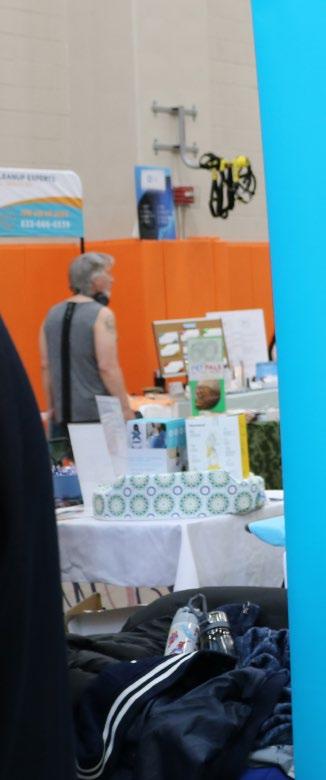
We are embedded in UI Health and its Mile Square Health Center network of federally qualified health center (FQHC) clinics and safety-net partners.
We focus on “Special Geographies Areas” throughout Cook County which bear the brunt of poverty, violence, pollution and other hardships.
Our science identifies the causes of cancer disparities, tests new treatments to eliminate them and develops strategies to address the structural, social and behavioral drivers of disparities.
Our efforts to increase inclusion in research result in majority minority representation in clinical trials, tissue biorepositories and public health studies.
We are located in and serve communities throughout Cook County, including Chicago. Our Special Geographies Areas – 20 zip codes wherein we have a clinical presence or partnership – face more poverty, crime and pollution than other areas of Chicago, Cook County and the USA.
We ensure that innovations in prevention, early detection and treatment of cancer are equitable and accessible to all.
Quality affordable care is available to all at UI Health, its Mile Square Health Center FQHC and at external FQHC’s and safety-net partners.
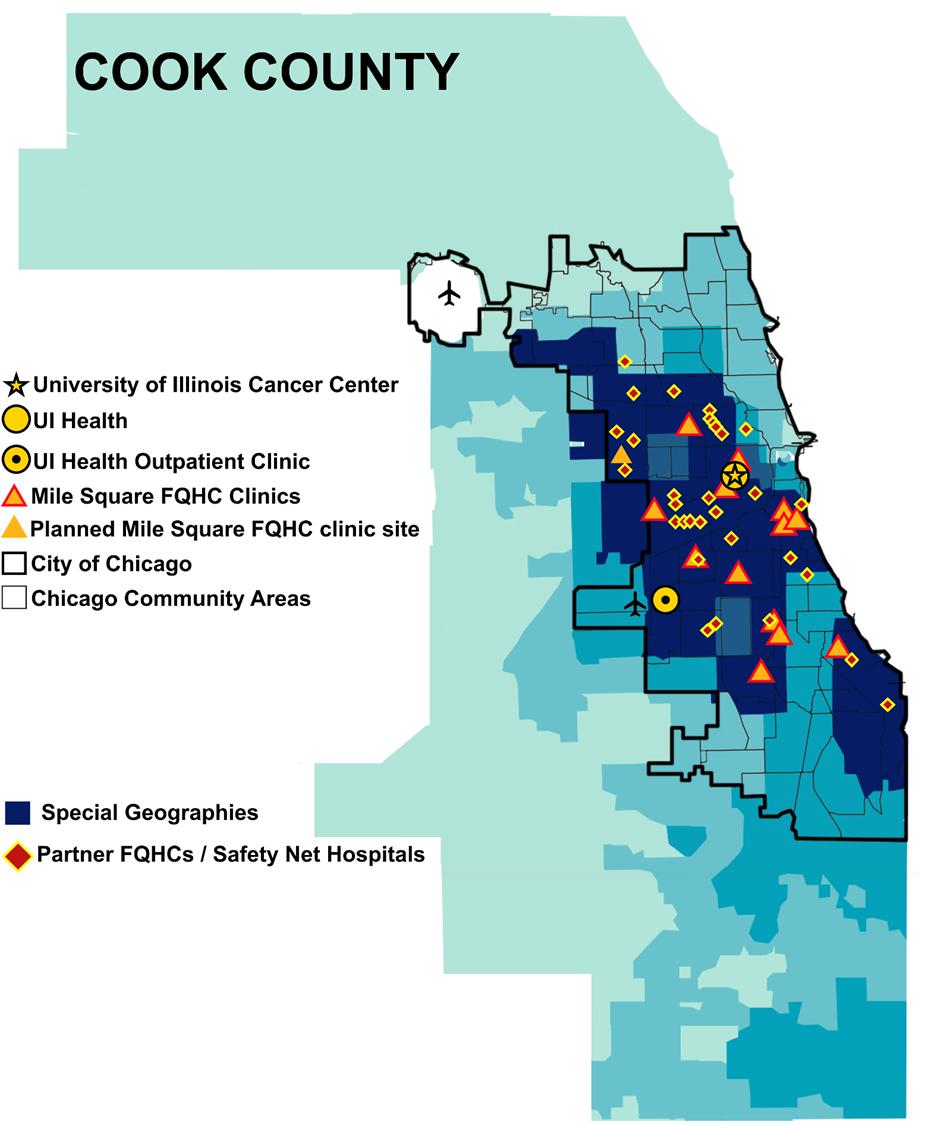
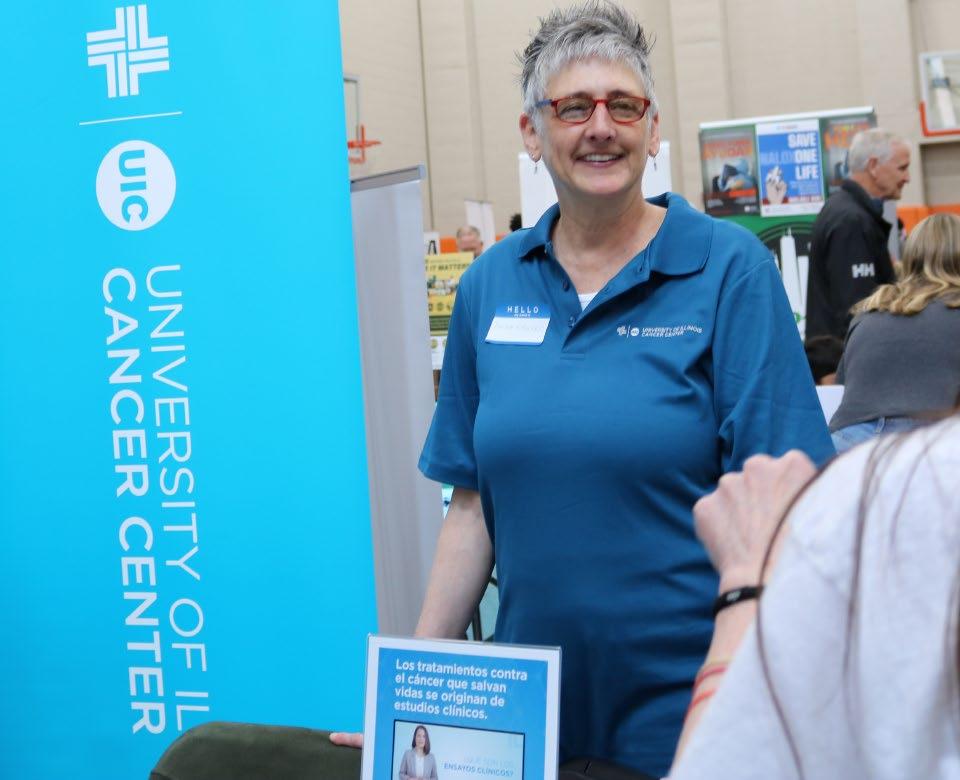
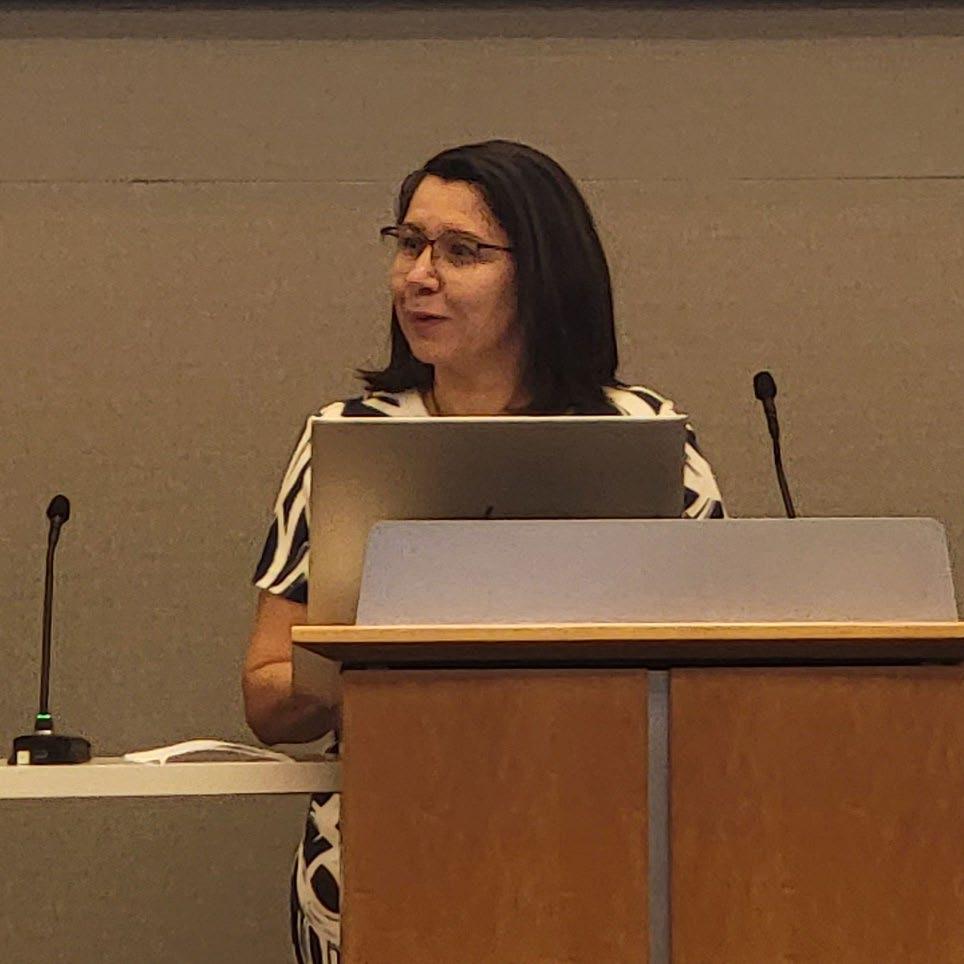
OUR MISSION is to provide innovative care designed to eliminate cancer health inequities by elevating the voices of our diverse communities as stakeholders in discovery, education and the provision of care.

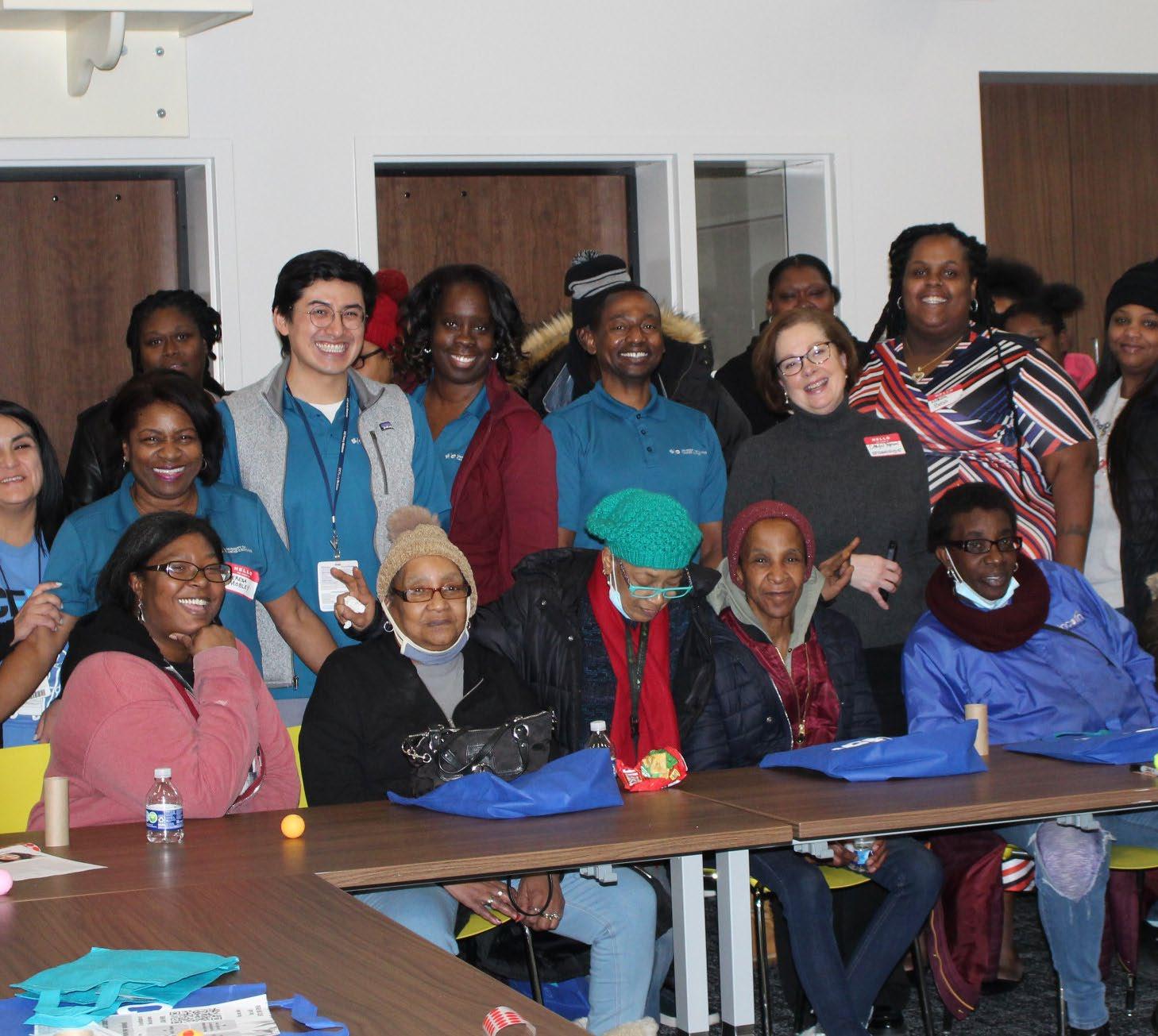
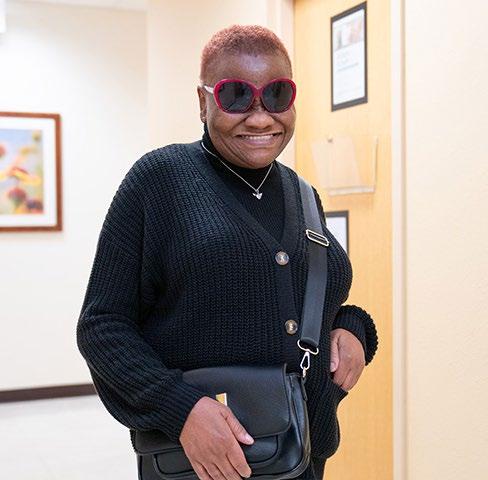
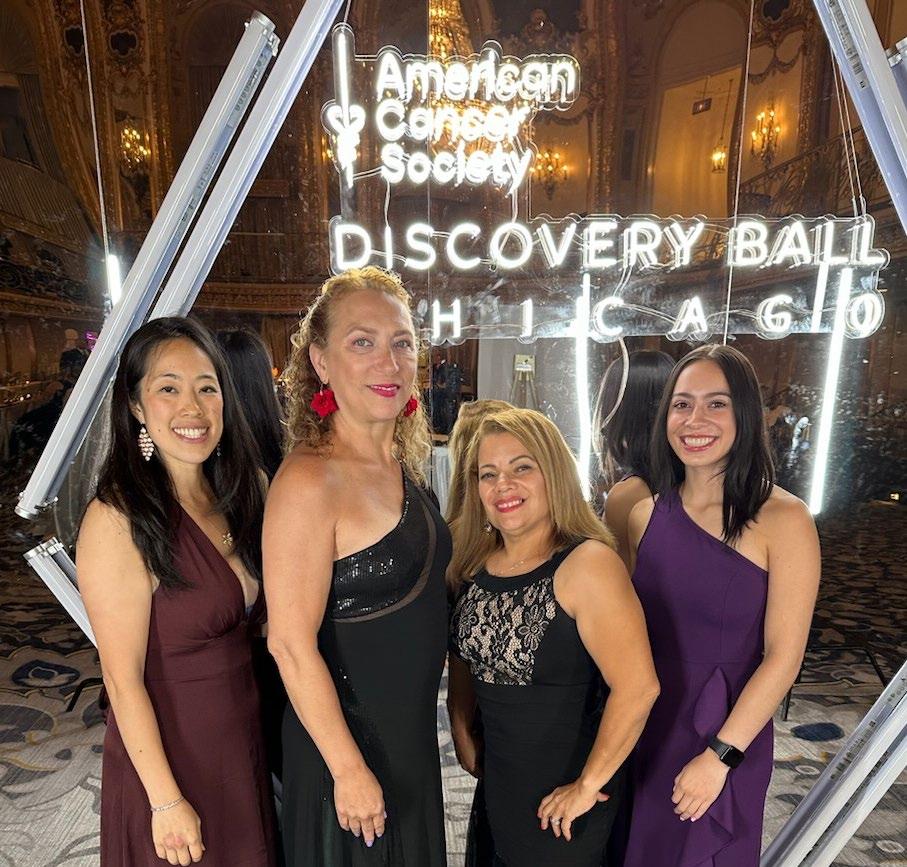
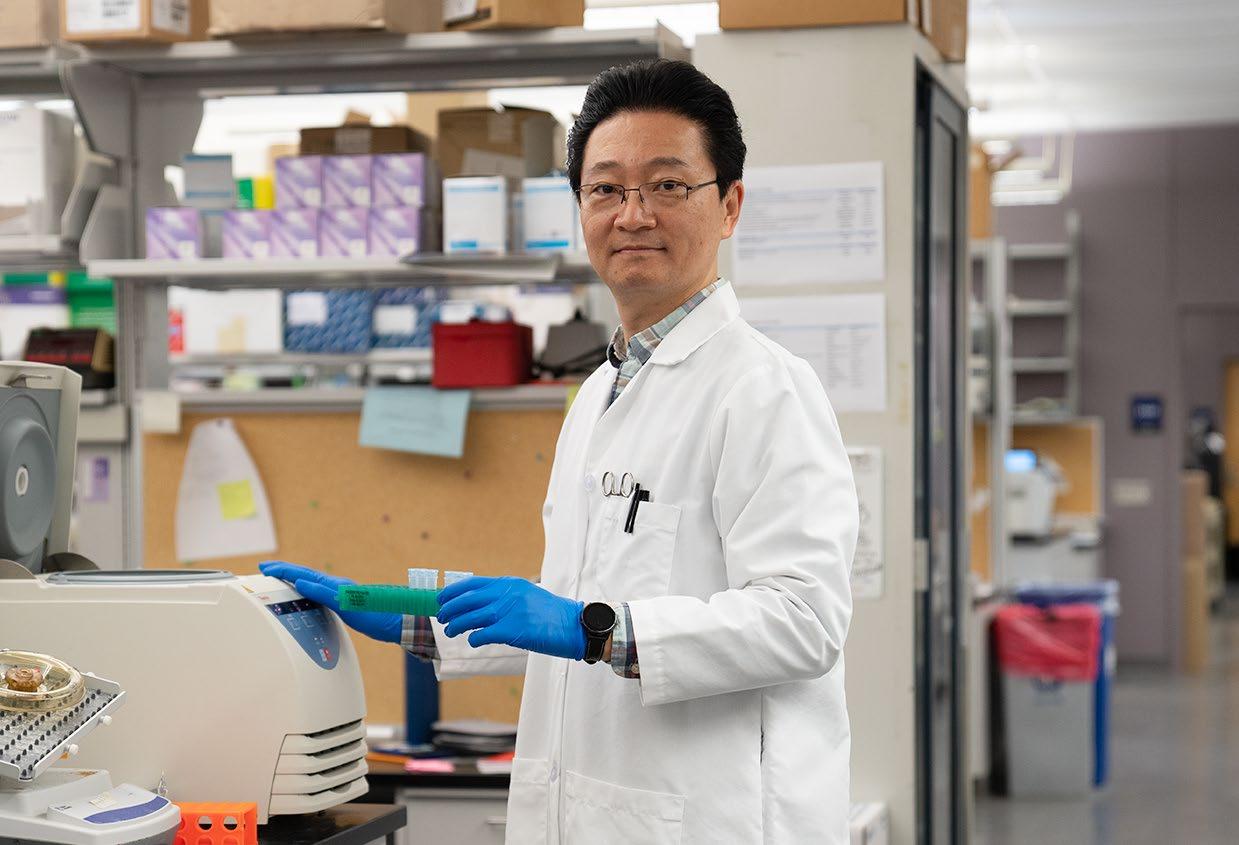
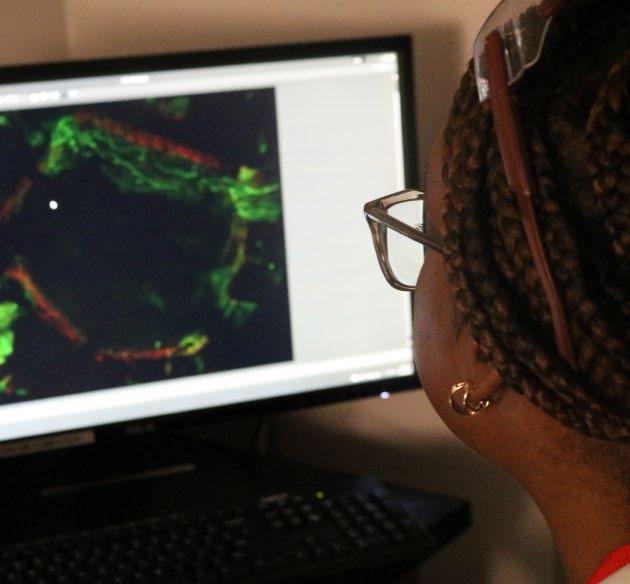
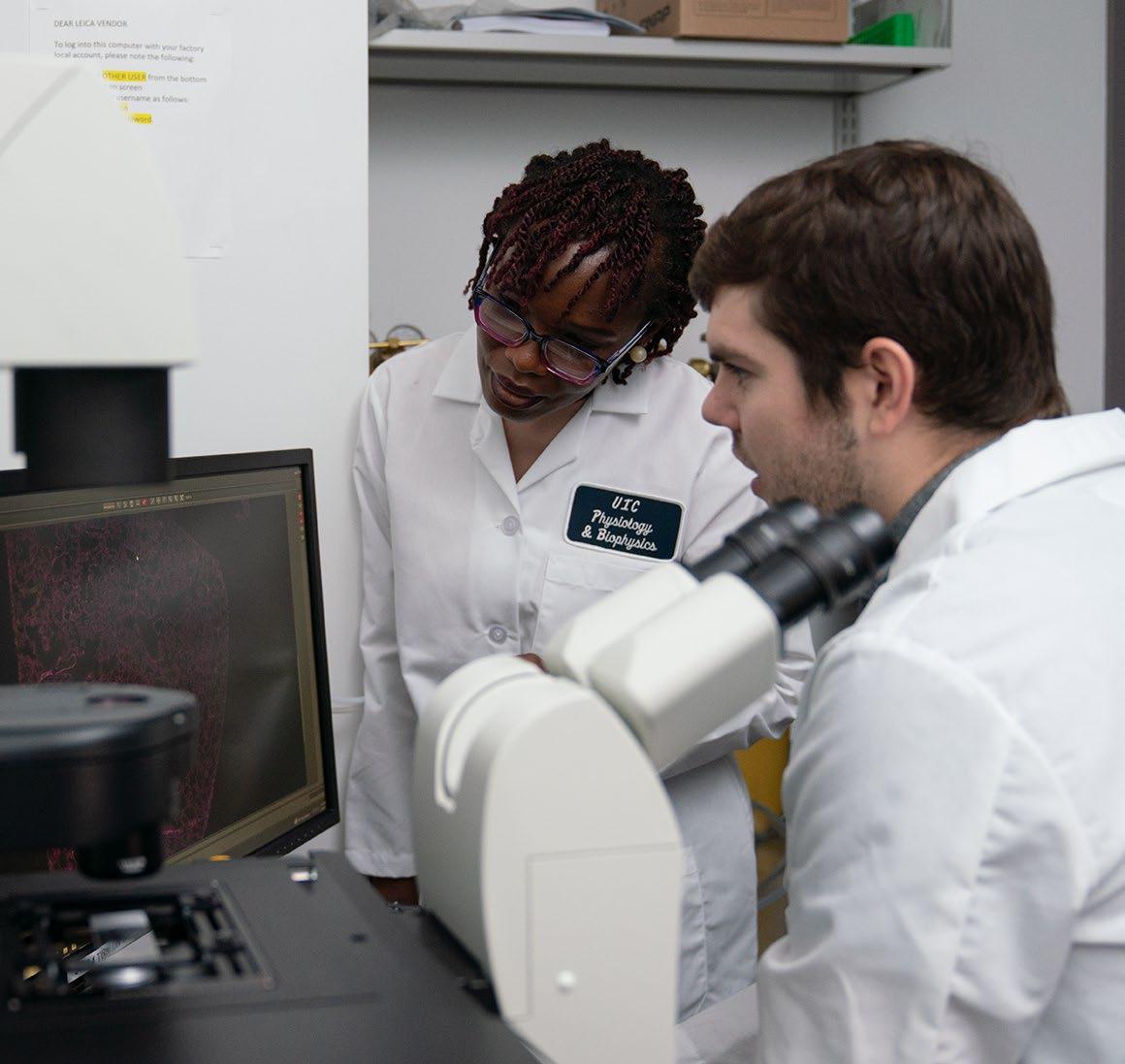
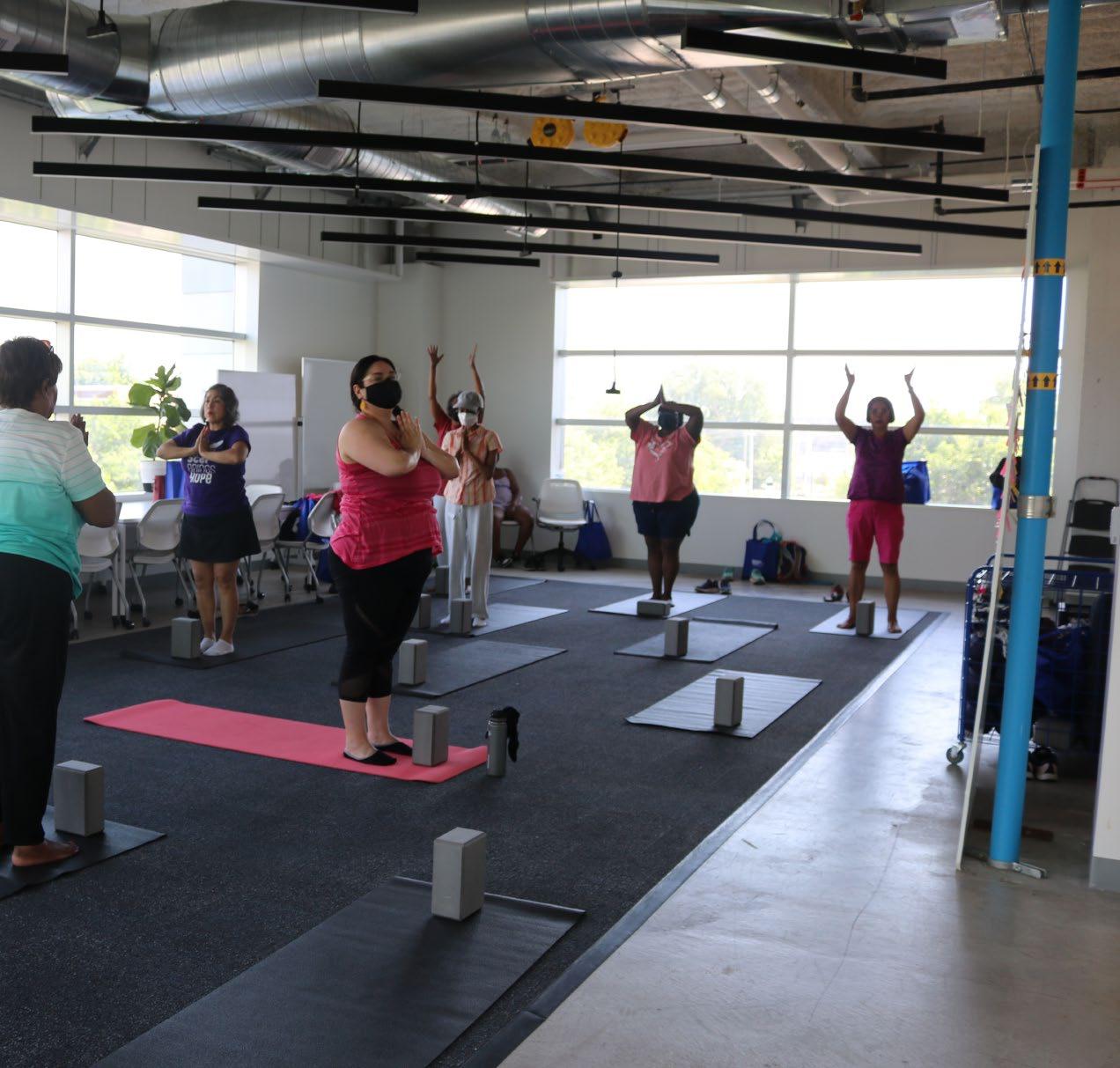
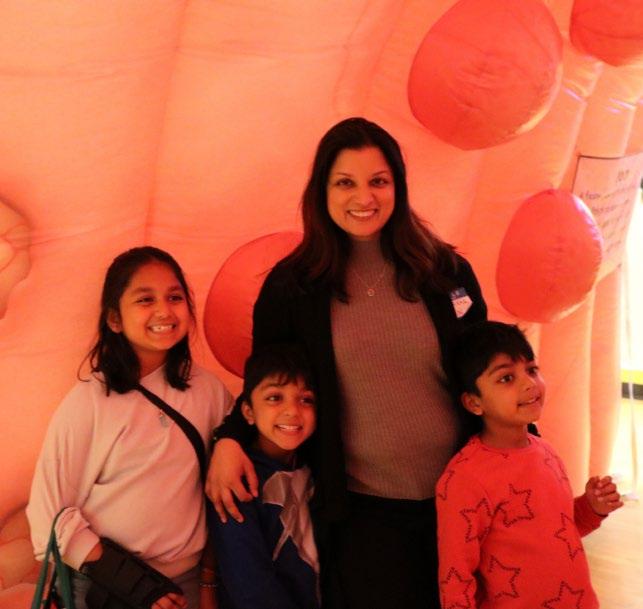
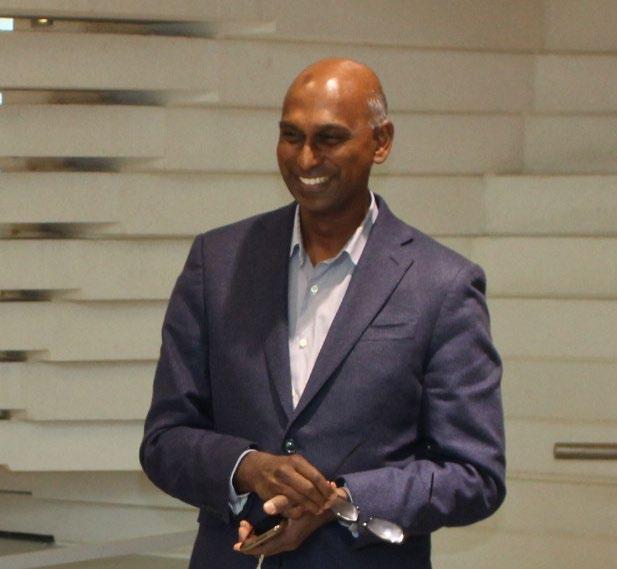
Black, Latino and Special Geographies Areas residents have 20-30% higher rates of late-stage disease as compared to the USA.
HIGH-IMPACT PUBLICATIONS
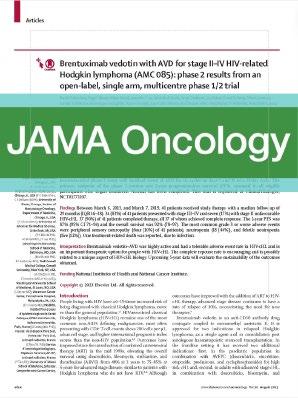
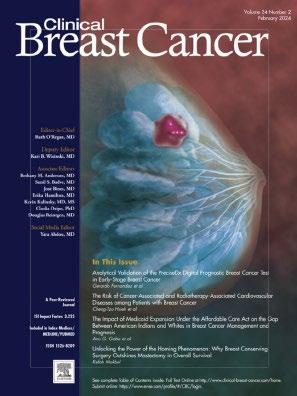
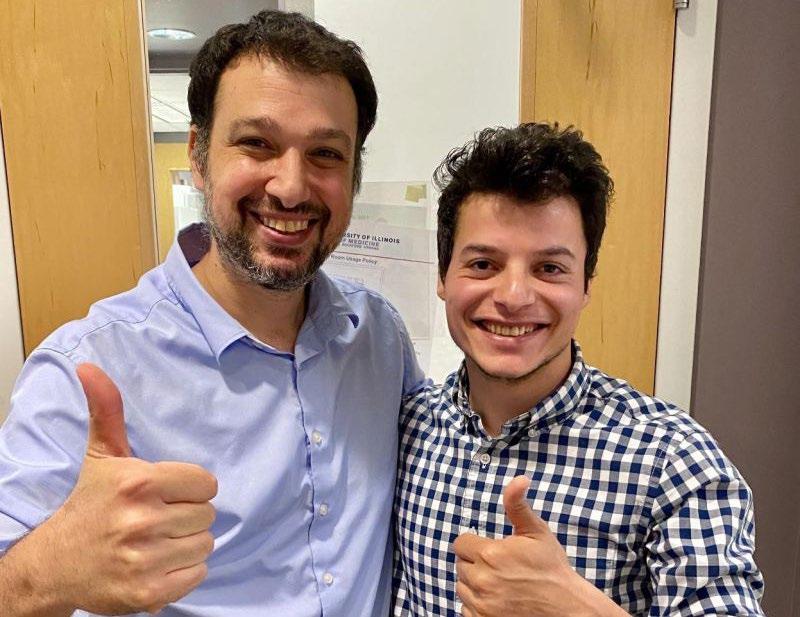
TRAINEE HIGHLIGHT
Mohamed Haloul, PhD student
JOHN AND KATHY SOLARO
ENDOWED GRADUATE FELLOW DEPARTMENT OF PHYSIOLOGY AND BIOPHYSICS
UNIVERSITY OF ILLINOIS COLLEGE OF MEDICINE
His cancer biology research focuses on breast cancer metastasis in the lab of Cancer Center member Ekrem Emrah Er, PhD, leader of the Cancer Center Tumor Microenvironment Working Group.
Er ranks Haloul in the “top 1% of all the students he has known throughout his academic journey at Harvard University, Memorial Sloan Kettering Cancer Center and the University of Illinois Chicago.” PROPORTION
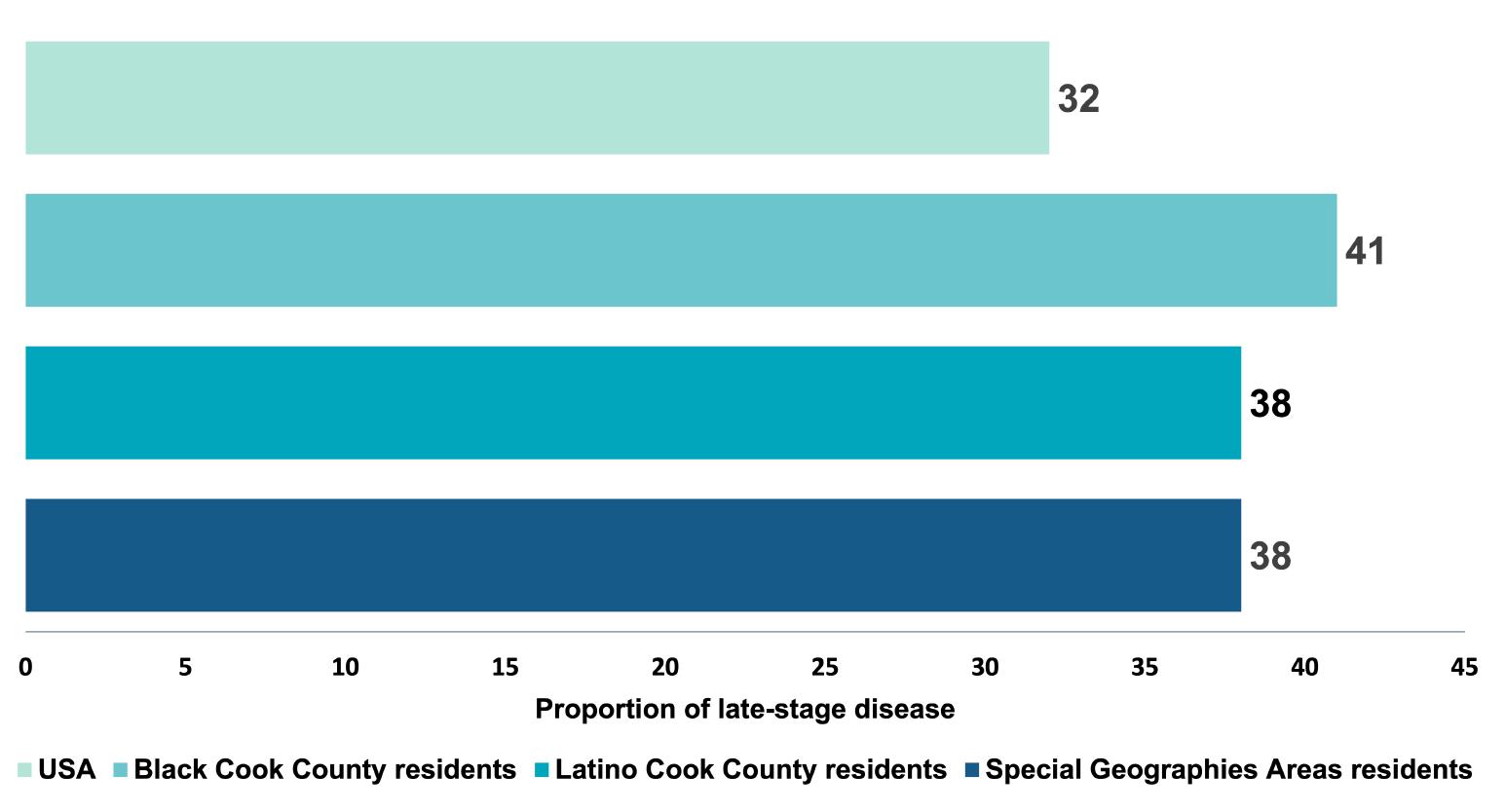
Partner with Illinois Breast and Cervical Cancer Program to navigate women to screening and care.
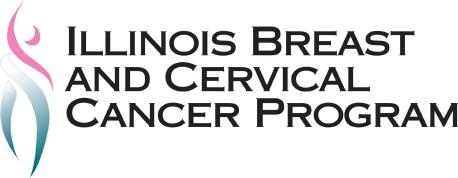
Facilitate research with community partners and survivors informing research priorities in labs
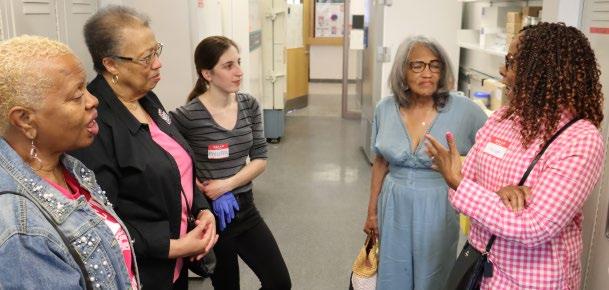
• National Cancer Institute-funded cancer biology research focused on breast cancer.
• Culturally tailored “empower” approach for Latina women, plus education and clinical navigation, leads to increase in breast cancer screening.
• Inclusive enrollment in biomarker studies to optimize therapies, directly responsive to community request for personalized biomarker research.
• Non-pharmacologic approaches to improving quality of life in survivorship among survivors in the Mile Square Health Center network of FQHCs.
• Investigator-initiated trials triple because Cancer Center researchers design clinical trials for our diverse patient population.
Black and Special Geographies Areas residents have 25-30% higher rates of new colorectal cancer diagnoses as compared to the USA.
NUMBER OF NEW CASES PER 100,000, ADJUSTED FOR AGE
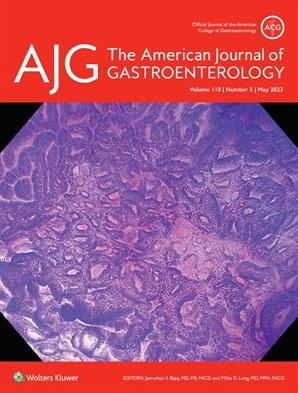
HIGH-IMPACT PUBLICATIONS
ILLINOIS CANCER HEALTH
EQUITY RESEARCH (I-CHER) CENTER RESEARCHER
Keith Naylor, MD
ASSISTANT PROFESSOR, DEPARTMENT OF MEDICINE, DIVISION OF GASTROENTEROLOGY AND HEPATOLOGY
UNIVERSITY OF ILLINOIS COLLEGE OF MEDICINE
CANCER PREVENTION AND CONTROL MEMBER
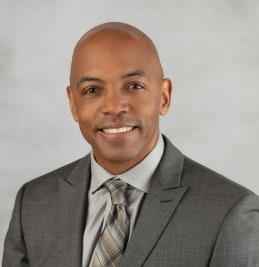
He leads the Cancer Center’s I-CHER Center-funded project to improve cancer risk assessment and colorectal cancer screening in underserved populations through better family history documentation.
Gerald Gantt, Jr., MD
SURGEON, DIVISION OF COLON & RECTAL SURGERY, UI HEALTH
His research interests include colorectal cancer genomics, health disparities and innovative surgical techniques. 42
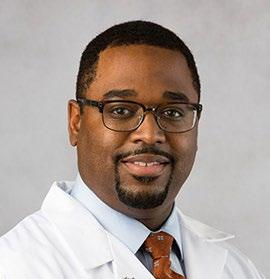
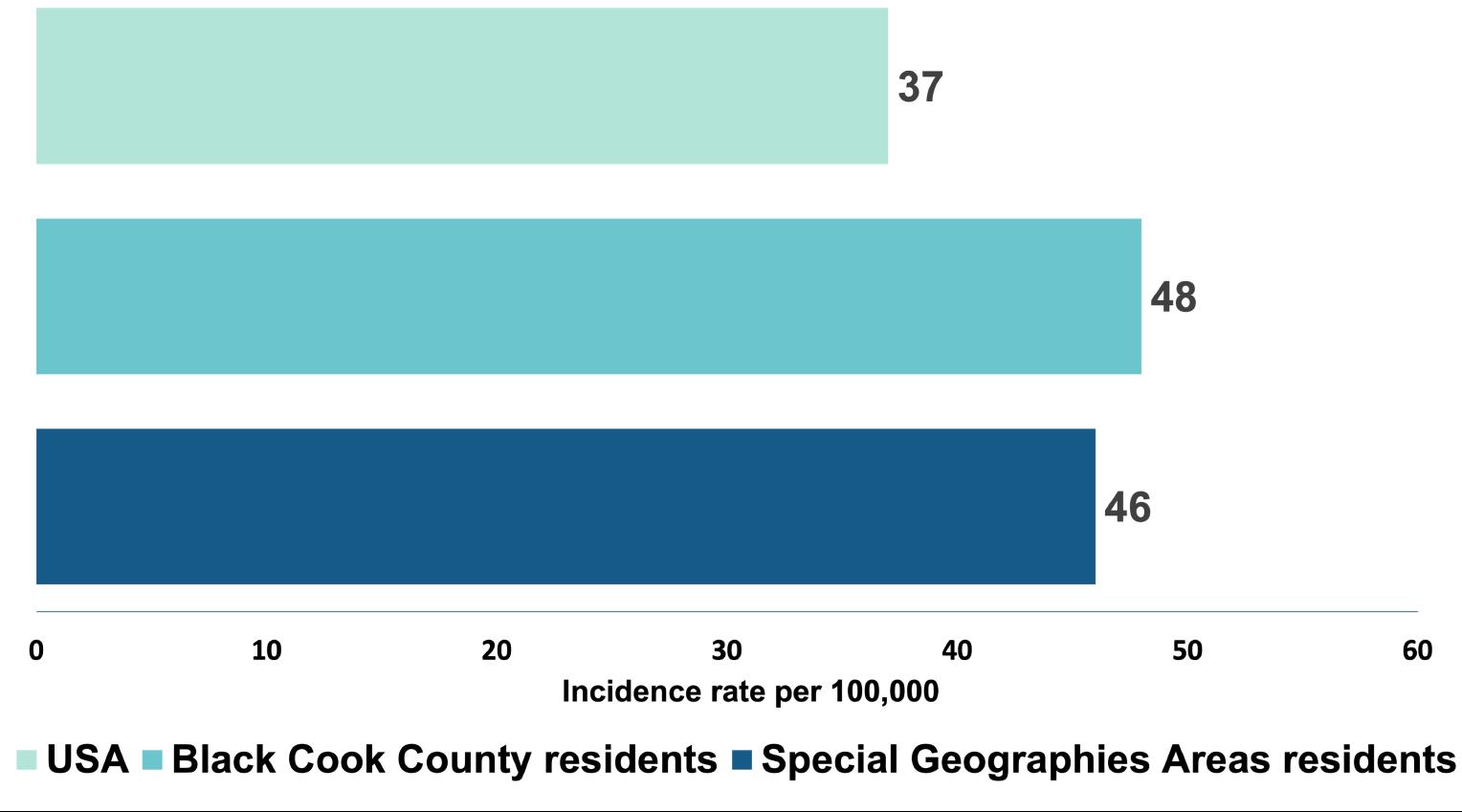
• NCI-funded, UI Health Mile Square Network (FQHC) research on time-restricted eating for weight control and colorectal cancer risk reduction in obese adults.
• Research at FQHC on most effective interventions to boost colorectal cancer screening.
• Intervention trial focused on diet quality and monitoring bile acid metabolism.
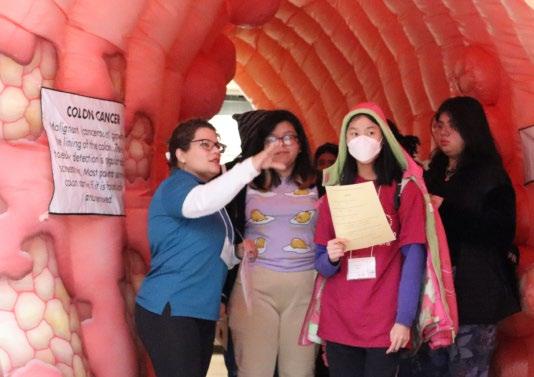
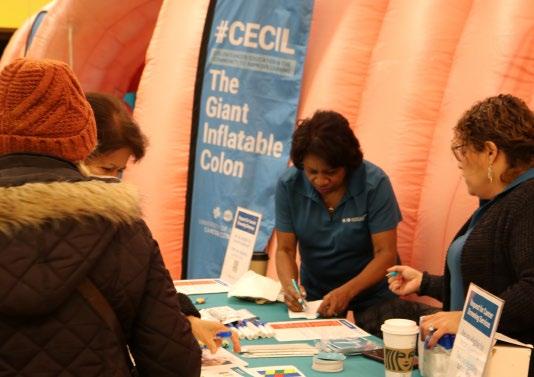
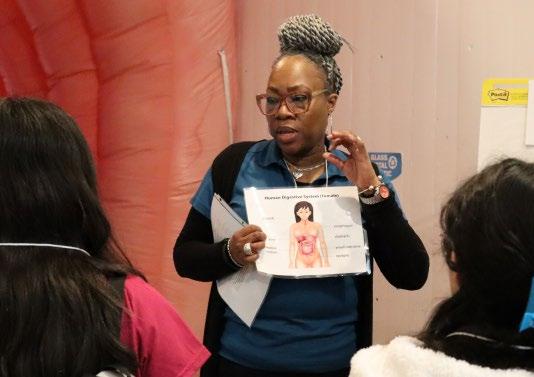
CECIL, the University of Illinois Cancer Center’s giant inflatable colon, travels to events throughout our catchment area to spread awareness about the importance of colon cancer screening.
Clinical Trials
HIGH-IMPACT PUBLICATIONS

PHYSICIAN-SCIENTIST HIGHLIGHT
Jason Wei-Liang Eng MD, PhD
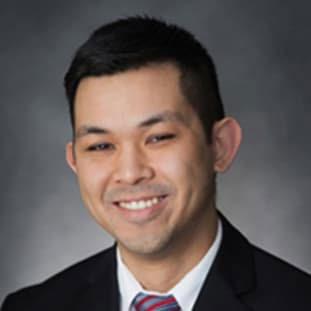
Initial training level: PhysicianScientist Fellow, Gastroenterology and Hepatology Division, University of Illinois College of Medicine (2016-2023)
Mentor: Jan Kitajewski, PhD
Publications:
3 peer-reviewed publications since 2016, 1 as first author
Award: University of Illinois Cancer Center
Clinical Scientist Pilot funding for professional development
Research:
Atypical Chemokine Receptor 1 (ACKR1) Expression and Racial Inequity in HCC Outcomes.
Current training level: Advanced Hepatology Fellow Gastroenterology and Hepatology Cleveland, OH
Black and Latino residents have 10% and 70% higher rates of new liver cancer diagnoses, respectively, as compared to the USA.
NUMBER OF NEW CASES PER 100,000, ADJUSTED FOR AGE

• Newly developed Gastrointestinal (GI) Cancer Working Group with programmatic initiatives in hepatocellular carcinoma (HCC), also known as liver cancer.
• Seeking program project grant for multidisciplinary Obesity, Metabolism and Liver Cancer research program
• Cancer Center Pilot Grant: Obesity, osteopontin and liver cancer
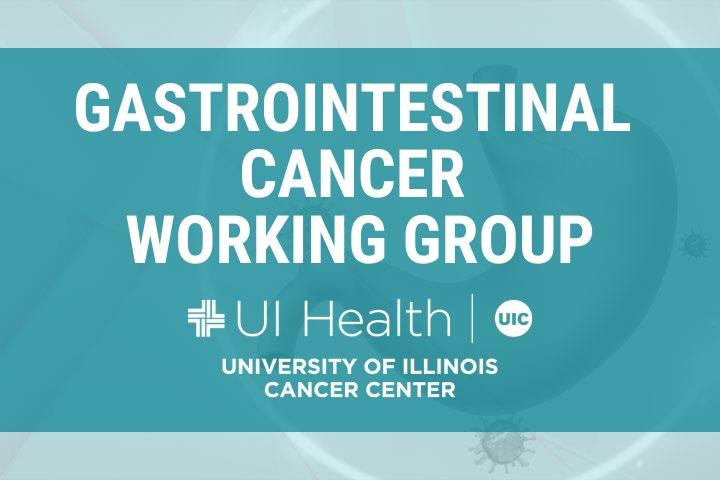
50
Clinical Trials
HIGH-IMPACT PUBLICATIONS
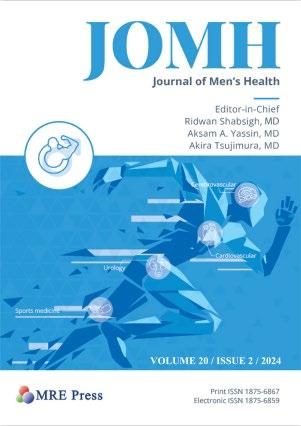
EARLY STAGE INVESTIGATOR
Ryan H. Nguyen, DO
THORACIC ONCOLOGIST AND CLINICAL TRIALIST, UI HEALTH
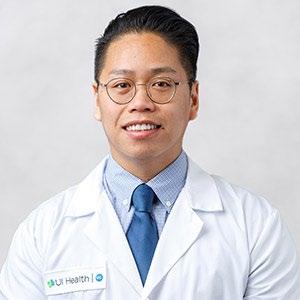
CANCER PREVENTION AND CONTROL PROGRAM MEMBER
CO-LEADER, PRECISION ONCOLOGY TUMOR BOARD
ROBERT A. WINN DIVERSITY IN CLINICAL TRIALS CAREER DEVELOPMENT AWARDEE
He is a physician and researcher in the Division of Hematology and Oncology at UI Health.
As a medical oncologist, he specializes in the care of patients living with lung cancer, skin cancers and eye cancers. He also develops and conducts clinical trials of new medicines and tests with the goal of helping patients with cancer live longer and healthier lives.
His research work is focused on ensuring that new discoveries in cancer research benefit all patients equitably.
Black and Special Geographies Areas residents have 15-25% higher rates of new lung cancer diagnoses as compared to the USA.
NUMBER OF NEW CASES PER 100,000, ADJUSTED FOR AGE
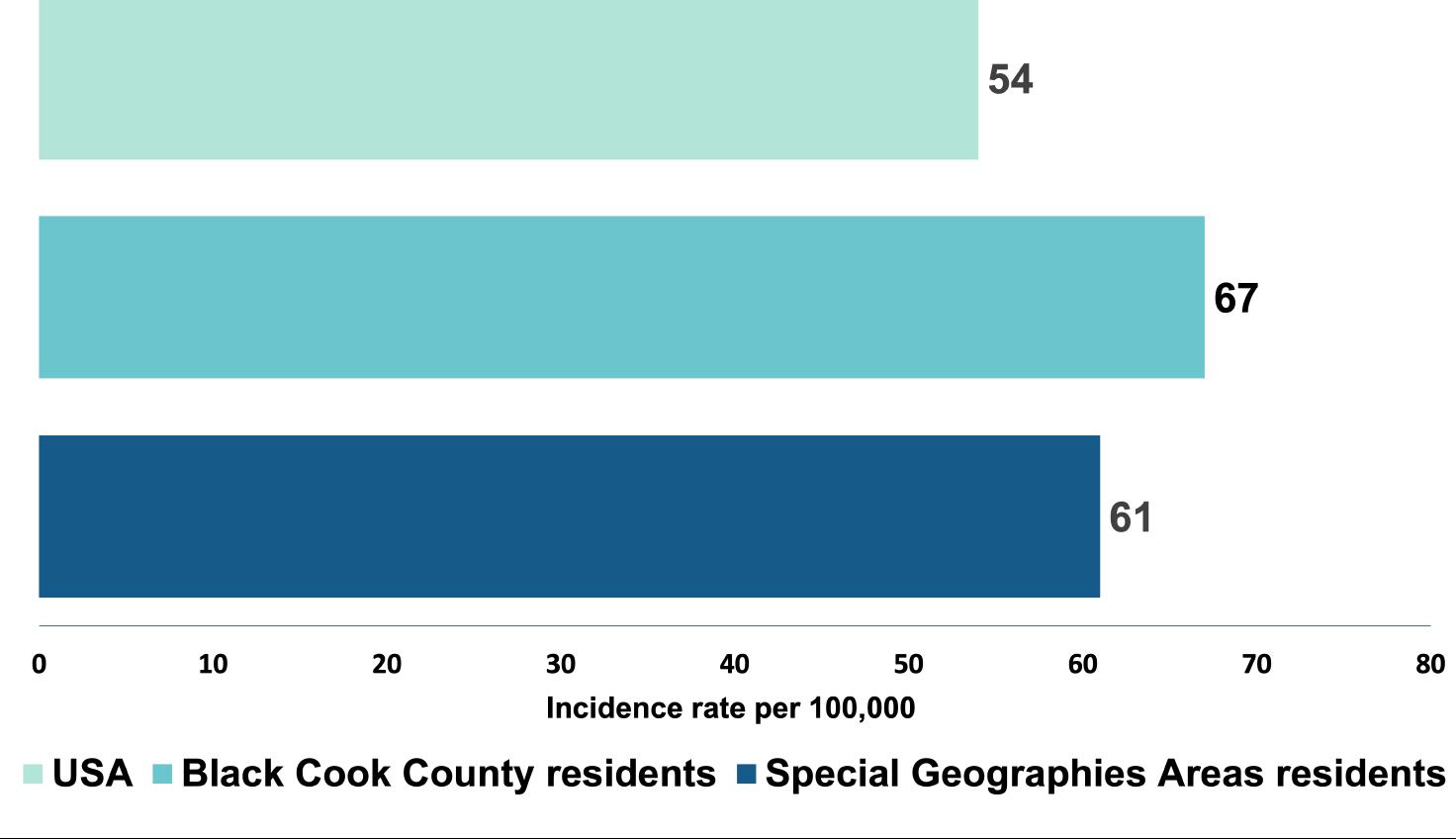
• Community-oriented lung cancer screening program leads to stage shift in lung cancer diagnoses; majority of patients diagnosed at UI Health now are stage I-III where curative treatment options are possible.
• Engaging Black men as citizen scientists to increase lung cancer screening among high-risk Black men.
• FQHCs informing community-engaged research.
• Identifying patients in our communities with EGFR mutations and resistance to erlotinib.
• Pilot Phase II for Patients with Metastatic Squamous Non-Small Cell Lung Cancer.
• Discovering neighborhood violence as novel lung cancer risk factor.
Black men in Cook County are more than twice as likely to die from prostate cancer than men in the USA – this is one of the largest disparities for any cancer site.
Clinical Trials
HIGH-IMPACT PUBLICATIONS

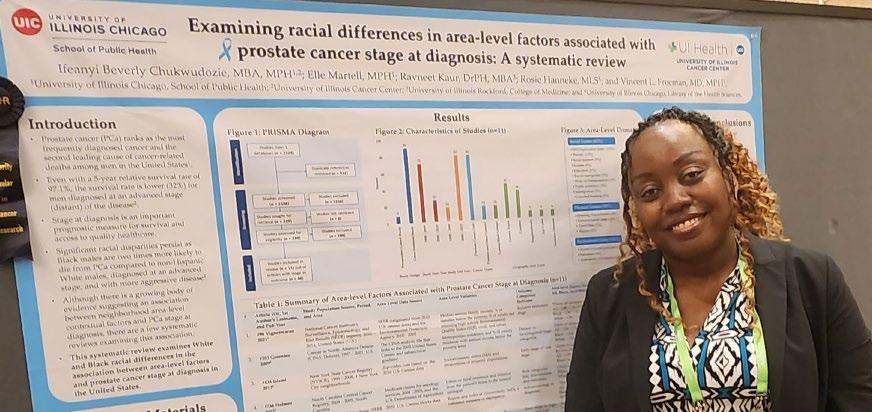
TRAINEE HIGHLIGHT
Ifeanyi “Beverly” Chukwudozie, MPH, MBA
AACR MINORITY SCHOLAR IN CANCER RESEARCH AWARD RECIPIENT
She was awarded the 2023 American Association for Cancer Research (AACR) Minority Scholar in Cancer Research Award.
She presented her work, “Examining Racial Differences in Area-Level Factors Associated with Prostate Cancer Stage at Diagnosis: A Systematic Review” at the AACR Conference on The Science of Cancer Health Disparities in Racial/Ethnic Minorities and the Medically Underserved in Orlando, Florida.
Chukwudozie is mentored by Cancer Center member Vincent L. Freeman, MD, MPH.
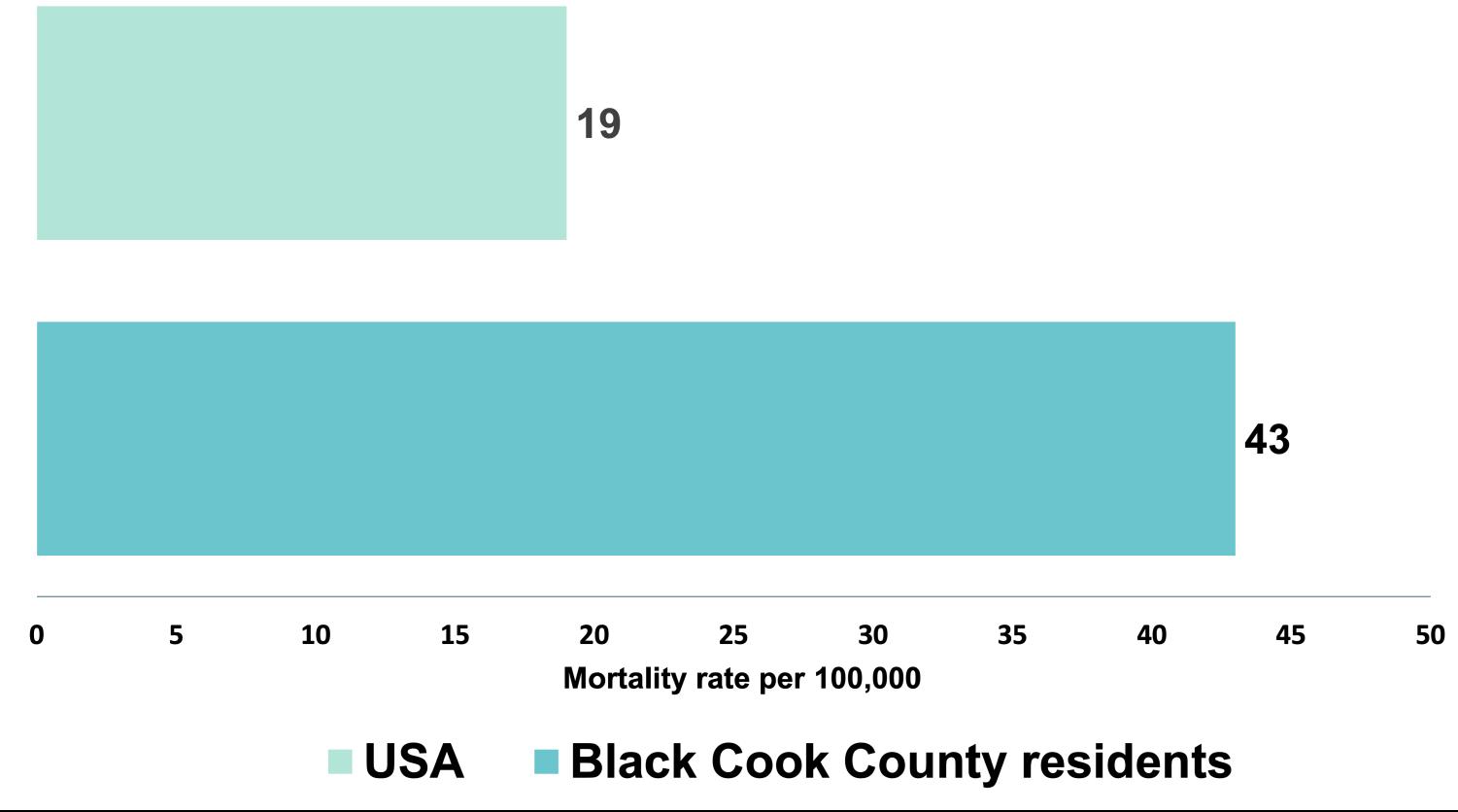
The University of Illinois Cancer Center brings equitable lab science to communities through education, involvement and engagement events across Cook County.
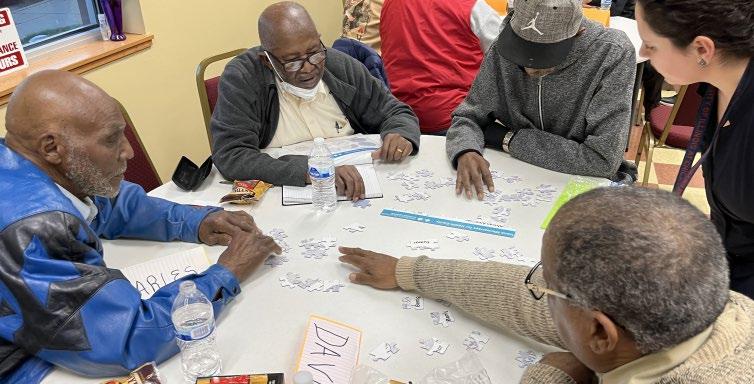
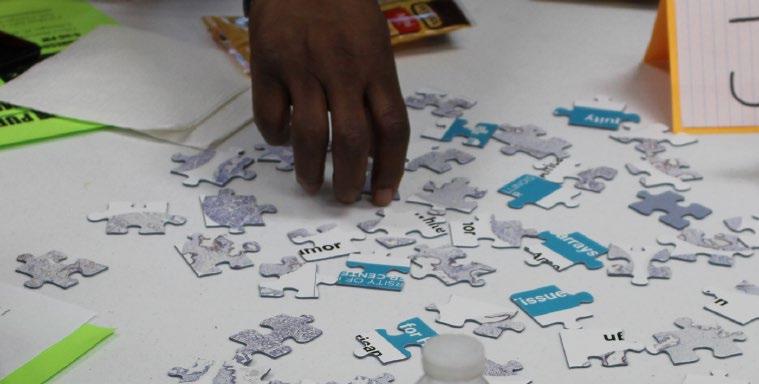
Using jigsaw puzzles of prostate cancer tissue microarrays to illustrate how prostate cancer tumor DNA sequencing helps scientists discover what causes cancer to grow and helps physicians personalize treatment.
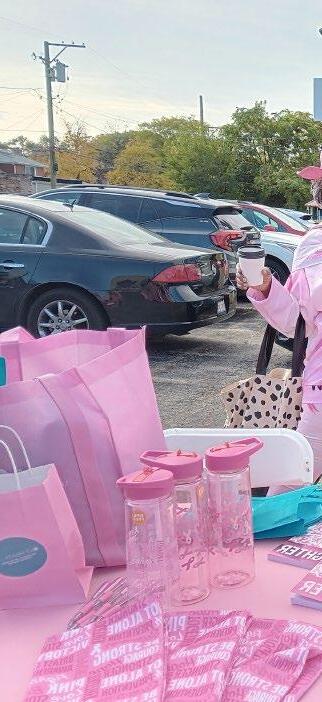
• Prostate Cancer Working Group comprised of researchers and physicians treating patients.
• Diverse collection of prostate cancer tissue donated from Black men available for researchers.
• Team science identifies link between vitamin D deficiency and increased import of androgen into prostate cells.
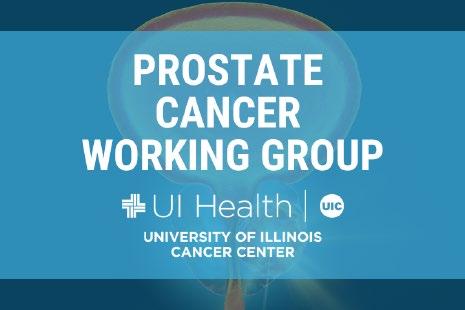
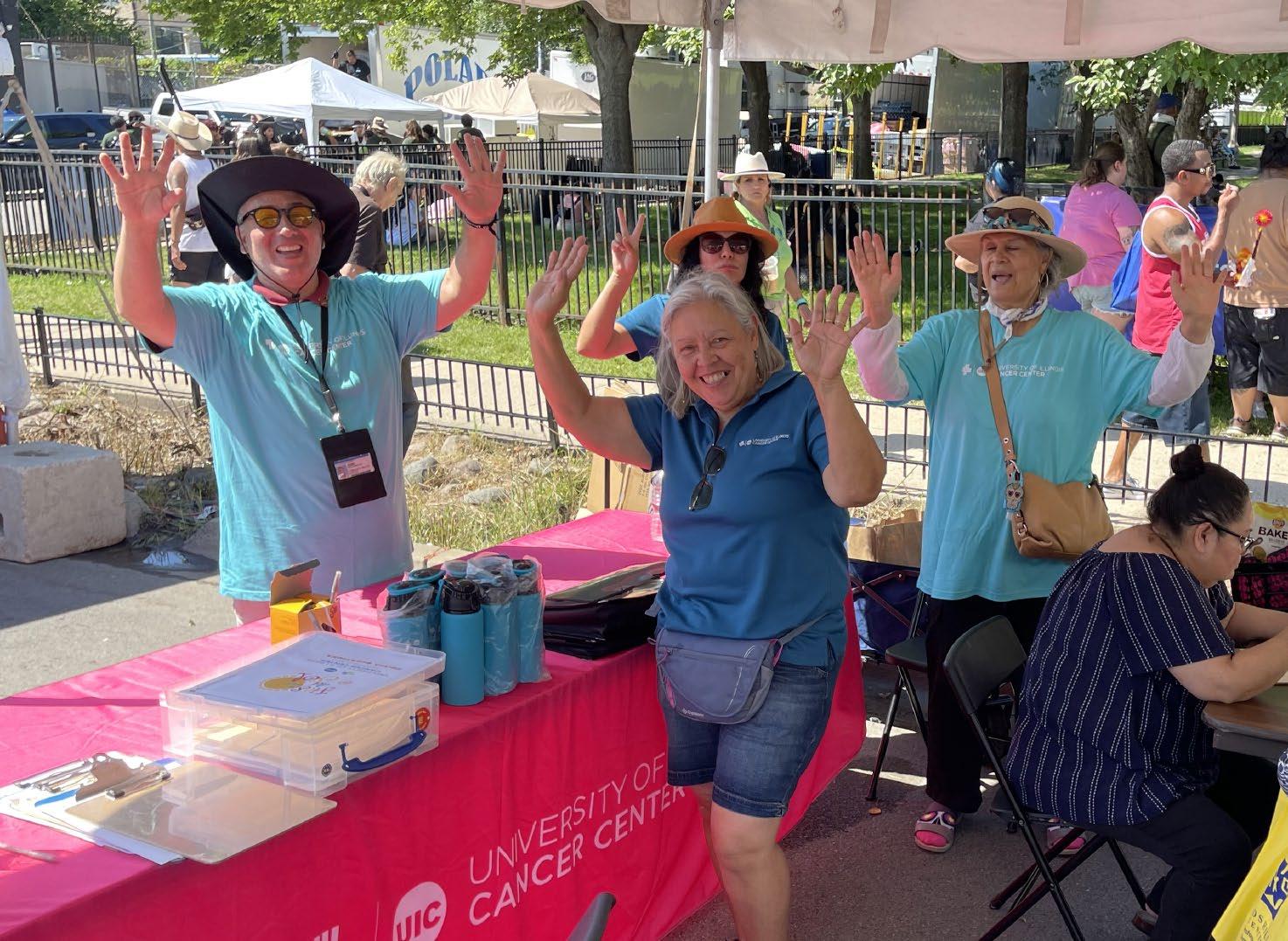
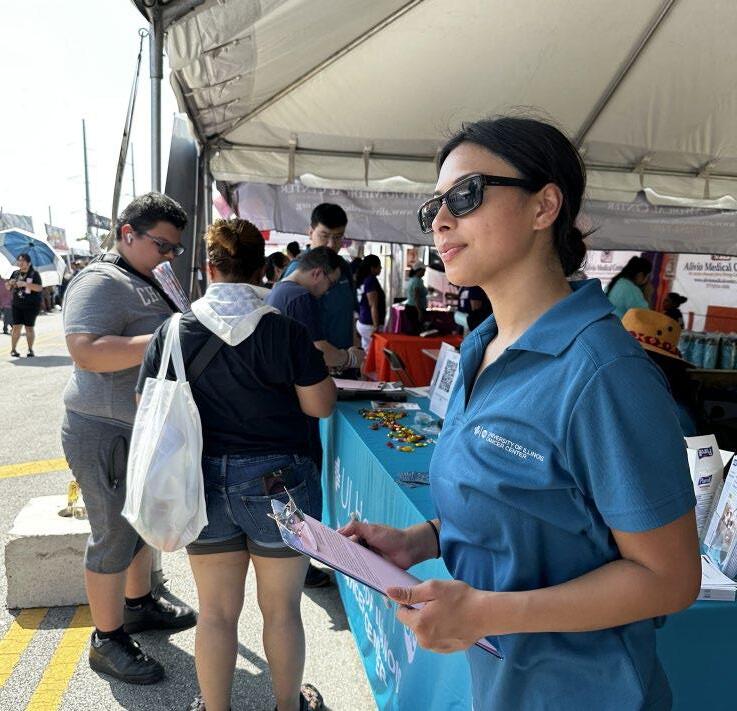
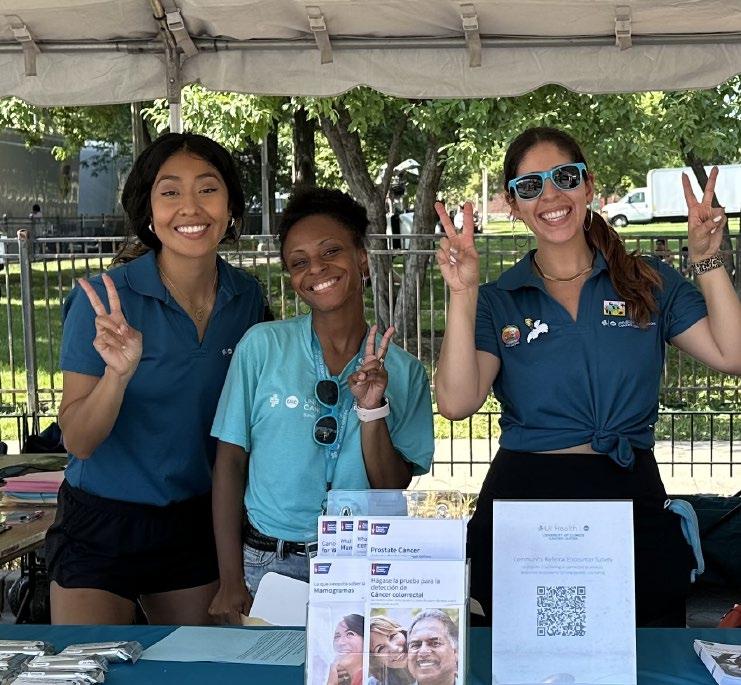
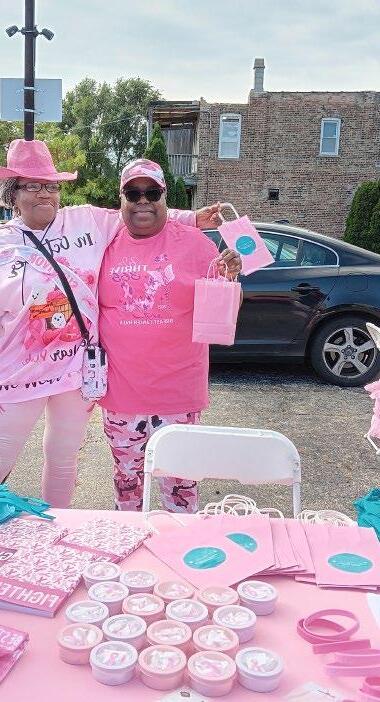
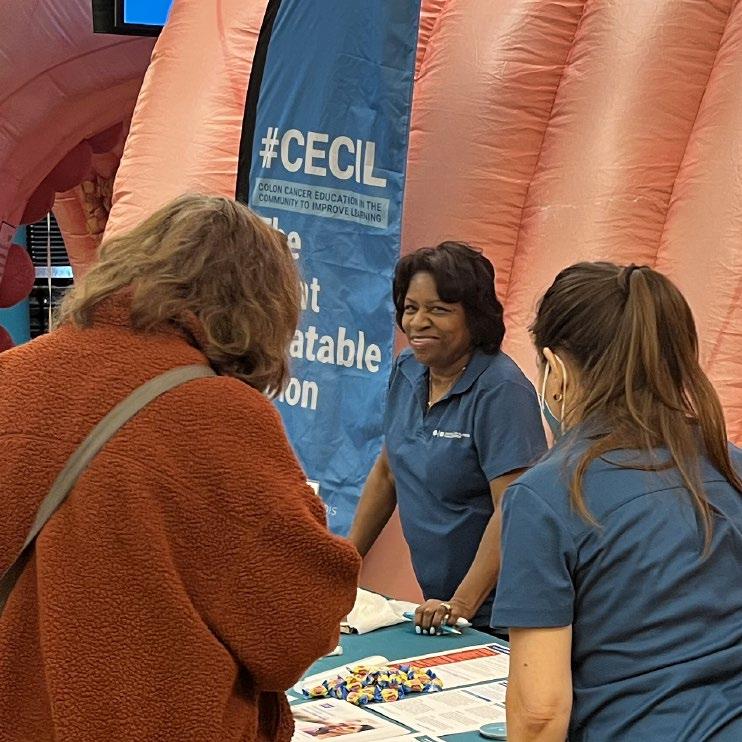

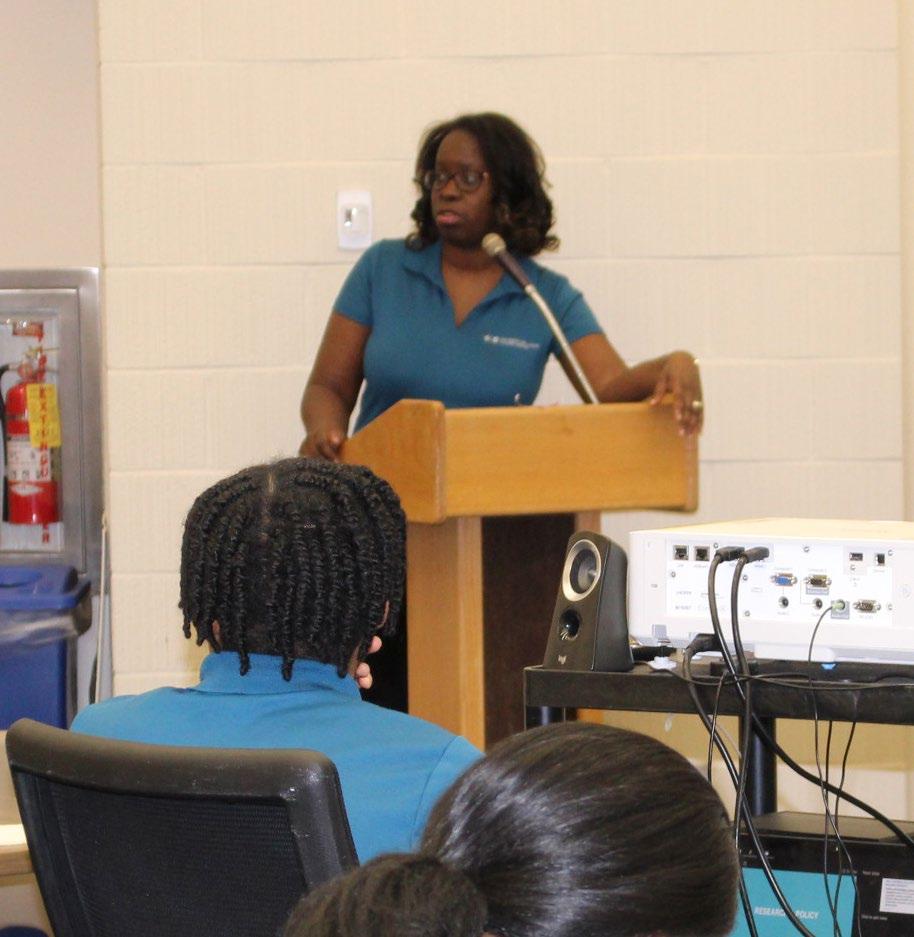
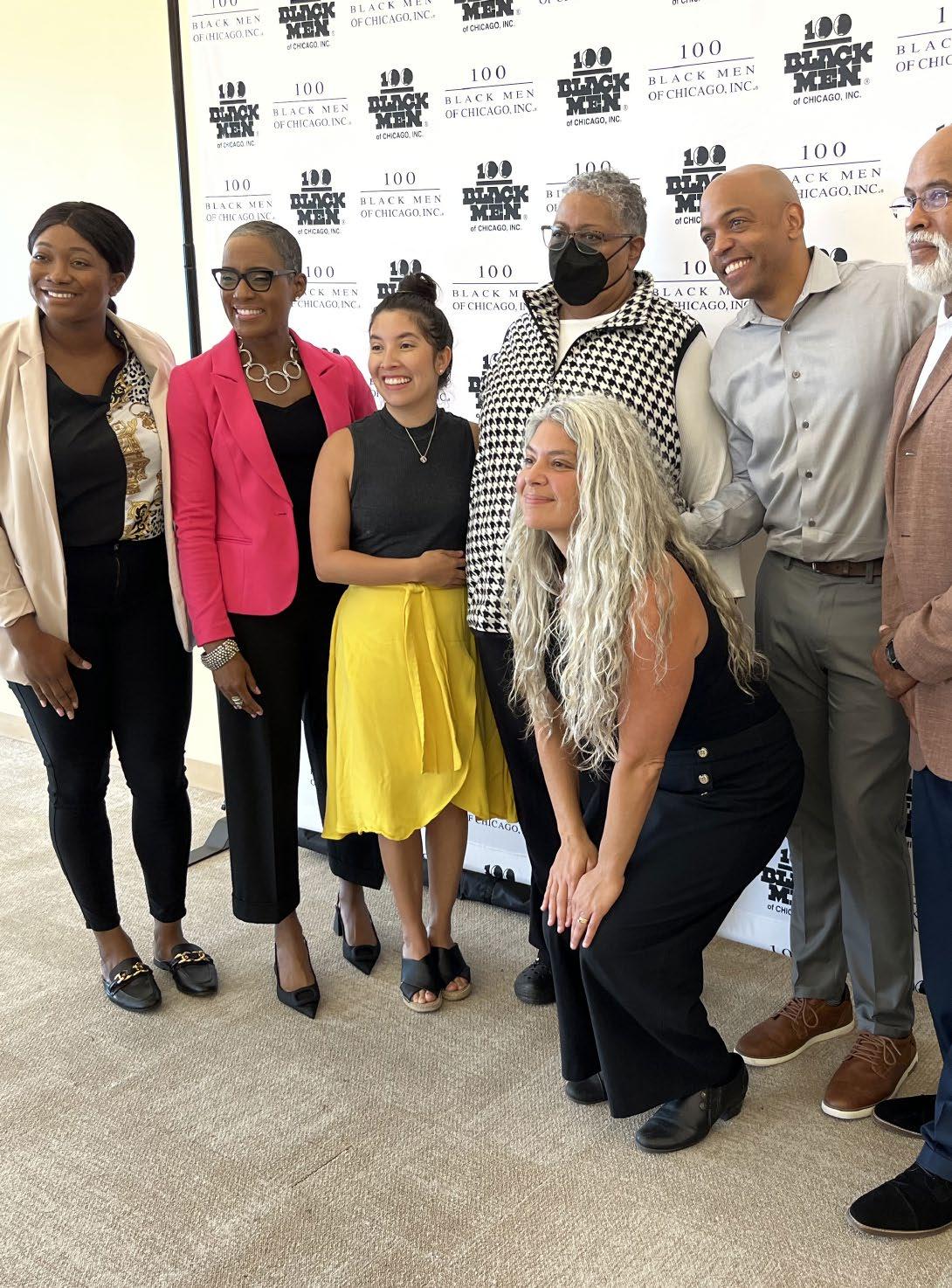
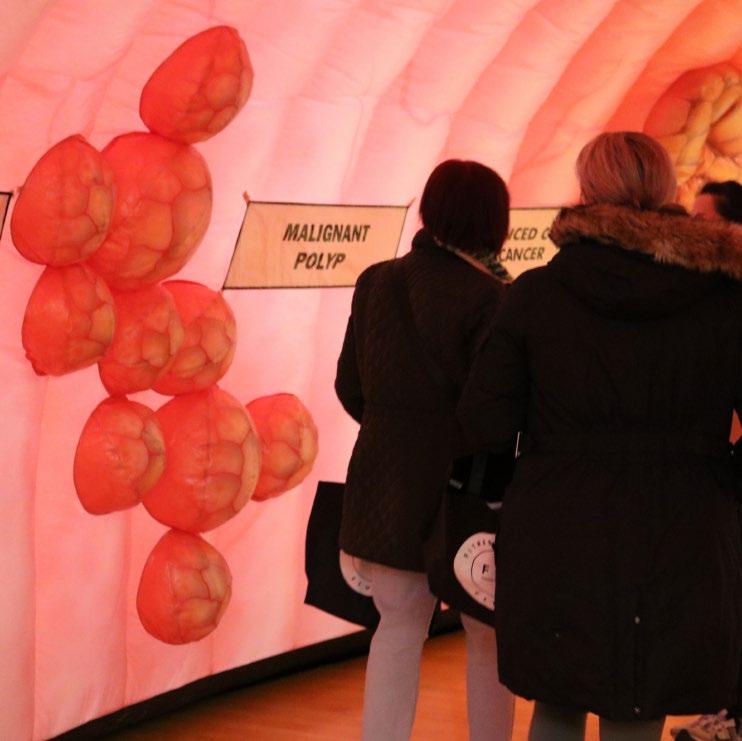
IS THE HEART and the center of our mission. It is our goal to ensure real, bidirectional partnerships between communities and our scientists, who are driven to ensure our science addresses cancer among local communities, including what the community prioritizes, and that our advances in care are consistently accessible to our communities.
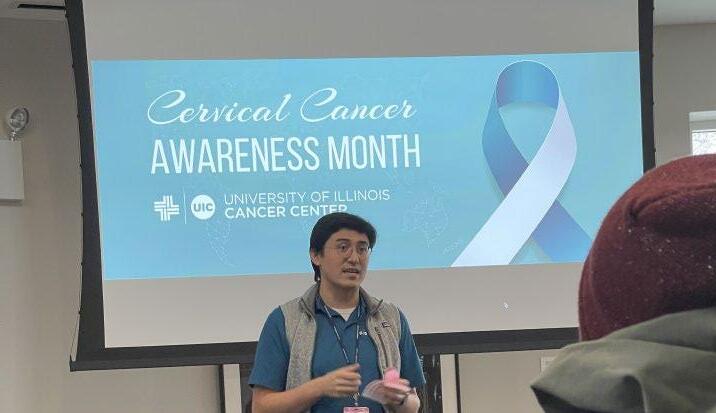
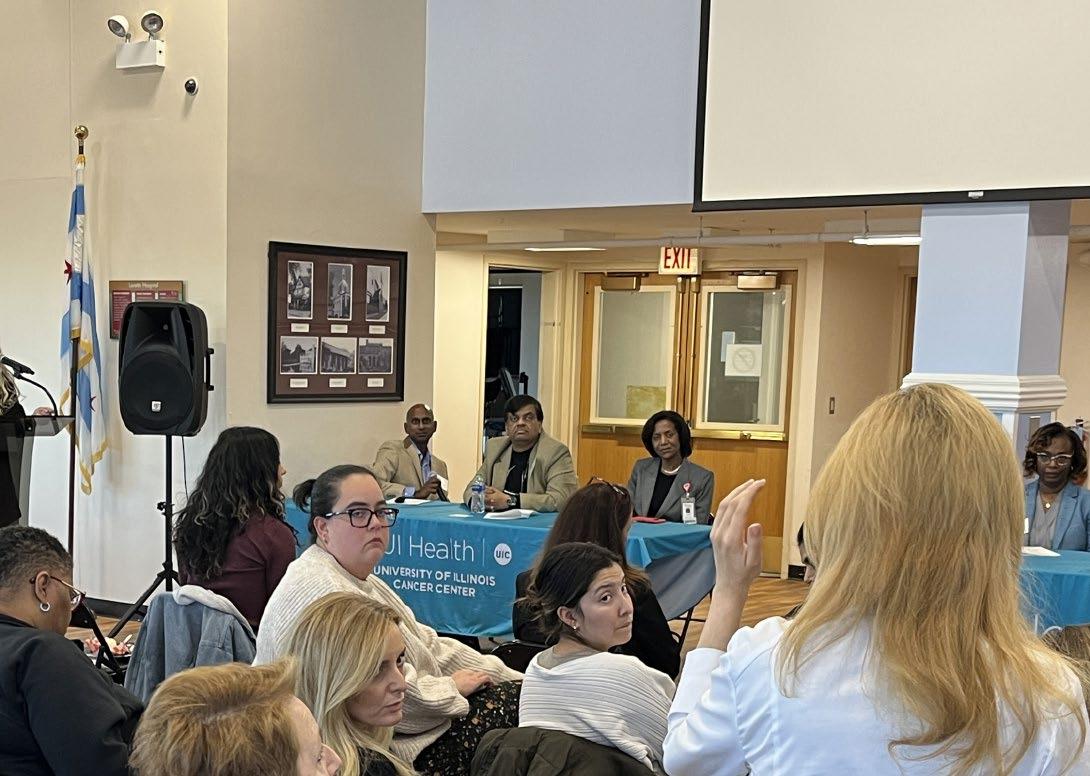
AIM 1: Define and monitor the cancer burden within the catchment area to inform the development and implementation of research and community responsive interventions that address the needs of the catchment area and beyond.
AIM 2: Promote and conduct community-informed evidence-based outreach and education, facilitated through community and academic partnerships that translate into and inform research.
AIM 3: Inform and foster community-engaged research across the Cancer Center’s basic, clinical and population science programs, including disseminating actionable information to researchers, clinicians and community stakeholders.
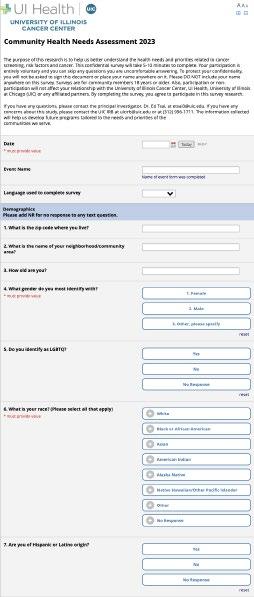

The Cancer Center conducted a Community Health Needs Assessment to better understand health needs and priorities related to cancer screening, risk factors and cancer in Cook County. The survey is conducted every two years in partnership with community organizations. Responses to the survey, which is available in English and Spanish, are collected at community events.
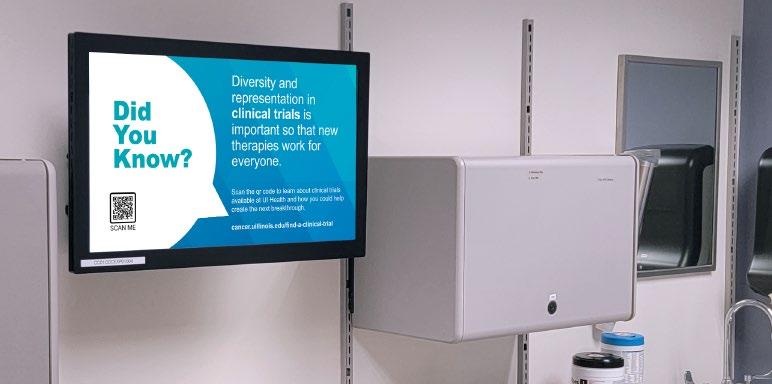
We expanded our patient education program by installing interactive video monitors in exam rooms at the cancer clinic in the UI Health Outpatient Care Center.
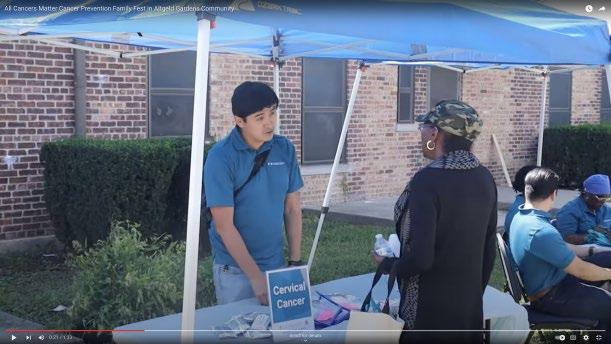
The Cancer Center sponsored and participated in the “All Cancers Matter Cancer Prevention Family Fest” in Altgeld Gardens, a resilient but underresourced community on Chicago’s far southeast side that is part of the larger Riverdale community area, where some cancer diagnosis and mortality rates outpace those of the city.
The partnership with the Flames is an opportunity to share information about cancer awareness, prevention, screening and clinical trials with our community of University of Illinois Chicago (UIC) students, faculty, staff, their friends and families, and sports fans at games.
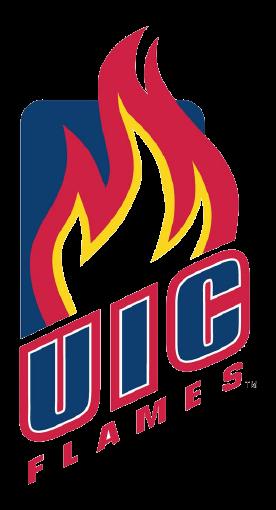
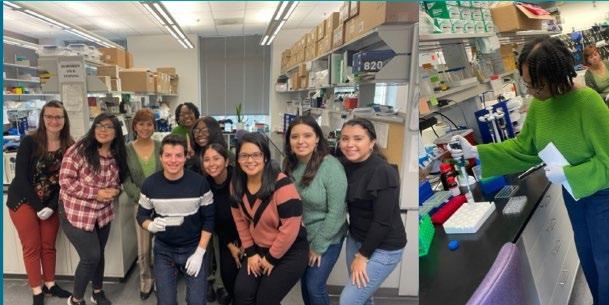
The Hope Leaders Program, dedicated to building genuine bidirectional relationships between scientists and community organizations, kicked off with its inaugural cohort of cancer biologists and community partners. The program empowers community organizations to communicate the health needs of the communities they represent directly to Cancer Center researchers. Additionally, it allows researchers and their labs to engage community partners about projects that may ultimately benefit local diverse populations, while giving community partners opportunities to provide input about experimental design, processes and findings.
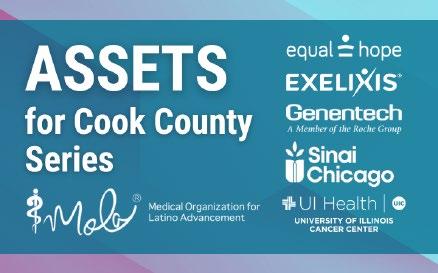
The Cancer Center engaged leaders from National Cancer Institute–designated cancer centers, the National Institutes of Health, pharmaceutical companies and cancer advocacy organizations for a webinar focused on structural solutions for increased diversity in clinical trials.
AIM 4: Support the development, implementation and dissemination of policy and advocacy initiatives that advance cancer health equity for the Cancer Center’s catchment area and beyond.
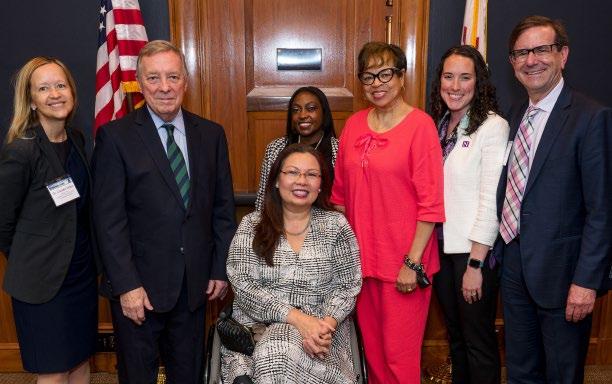
Cancer Center Director Jan Kitajewski, PhD, and our community partner Peer Plus Education and Training Advocates’ Founder and CEO Phyllis Rodgers headed to Capitol Hill with other Association of American Cancer Institutes and American Association for Cancer Research members to talk about how important cancer research funding is with members of Congress.
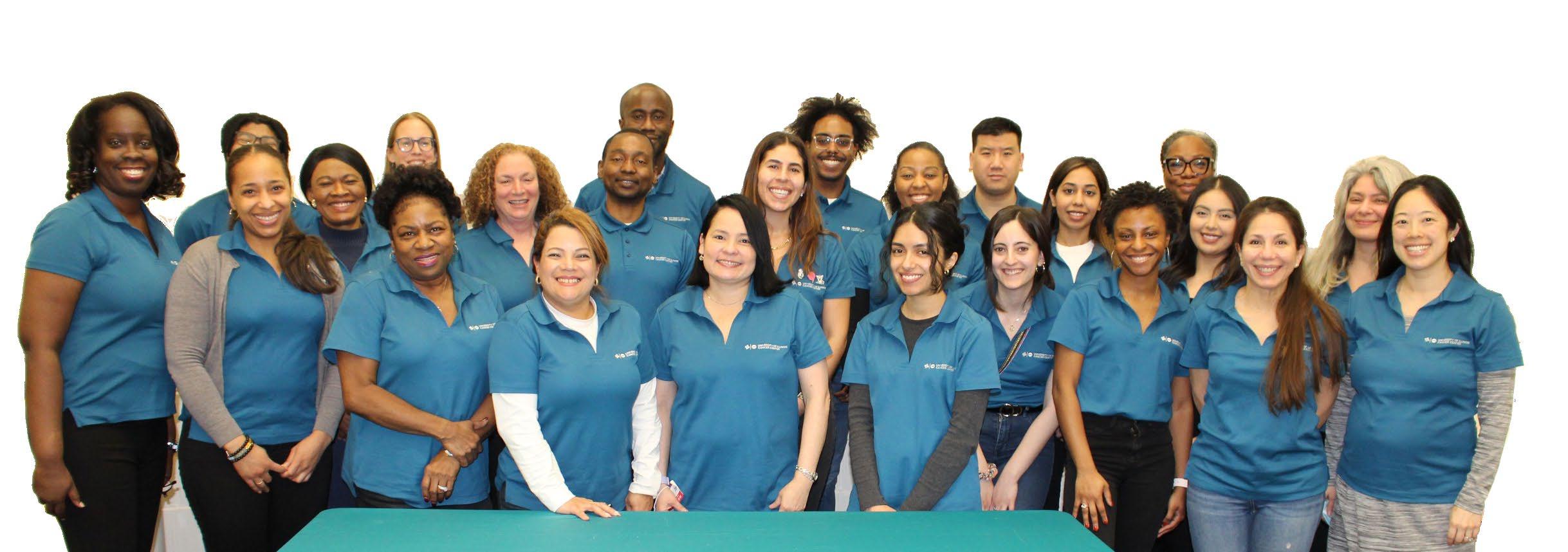
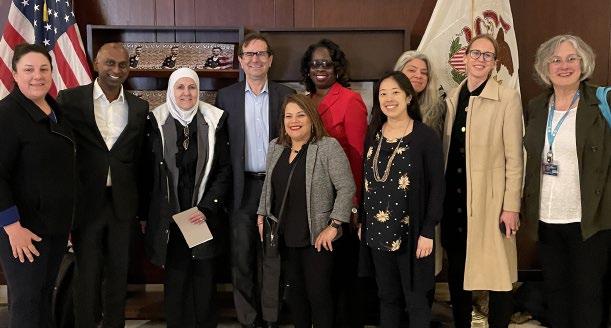
Cancer Center leadership and staff visited the Illinois State Capitol in Springfield to share updates with Illinois lawmakers and their staffs about our:
• Discovery and translational science
• Evidence-based research
• Community outreach, engagement and involvement that inform equitable clinical trials and screening participation
• Community partners and how involving them can inform democratized data-driven policies to reduce the state’s cancer health disparities.
1.5K NEEDS ASSESSMENT SURVEYS COMPLETED
15 MEMBER COMMUNITY ADVISORY BOARD
75,000 LISTENERS REACHED THROUGH MONTHLY RADIO PROGRAMMING IN ENGLISH AND SPANISH

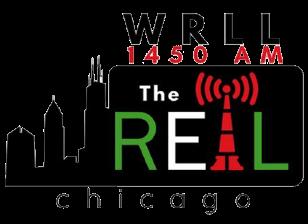
5,000 Viewers REACHED THROUGH FACEBOOK LIVES ENTRE CAFÉ Y CAFÉ (UNIVISION)
Our partnership with UI Health helped drive a 29% increase in cancer screenings between 2019 and 2023.
A 30% increase to 43.5K screenings per year is projected for 2024-2026.
Number of UI Health Patients Screened for Cancer
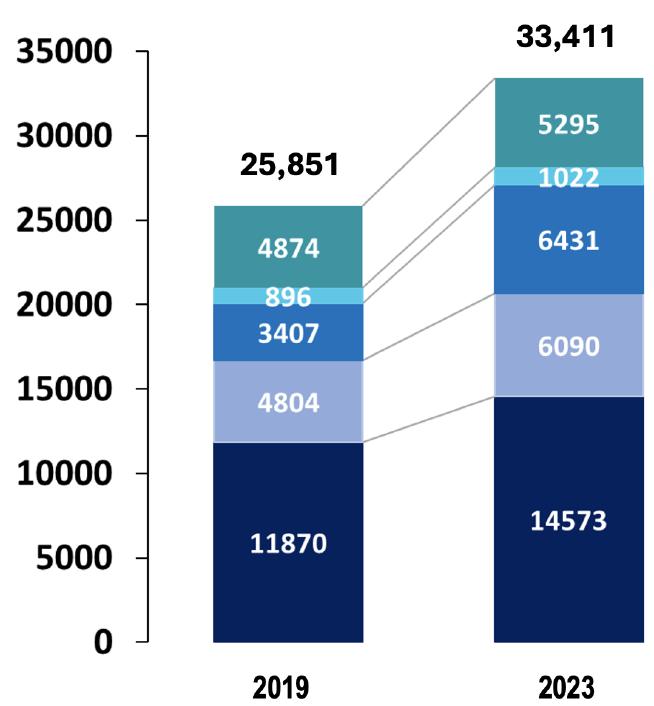
At the University of Illinois Cancer Center, we are committed to strengthening diversity in medicine and cancer research. We believe it is critical that we increase the number of trainees, from high school to junior faculty who pursue cancer research as a potential career field. By increasing the diversity of trainees at all levels interested in oncology research, we hope to impact how disparities in cancer are understood.
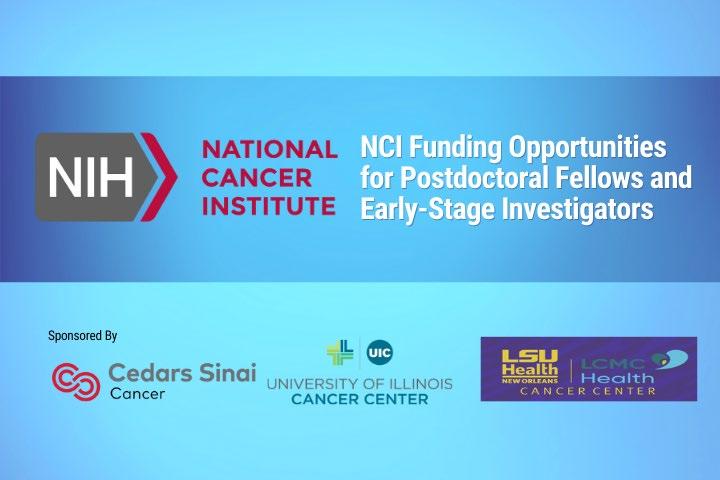
Hosted an NCI funding opportunities webinar for postdoctoral fellows and early-stage investigators in partnership with the Cedars Sinai and Louisiana State University Cancer Centers.
The National Cancer Institute grant (NCI T32CA057699) was renewed in 2023 and has been funded since 1992. The program prepares new investigators to conduct cancerfocused research.
Participated in Chicago Public Schools Young Men of Color and Young Women of Color Summits held at Northern Illinois University and Wilbur Wright College.
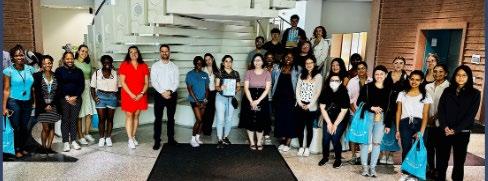
Held the first-annual meeting of Cancer Center Trainees.
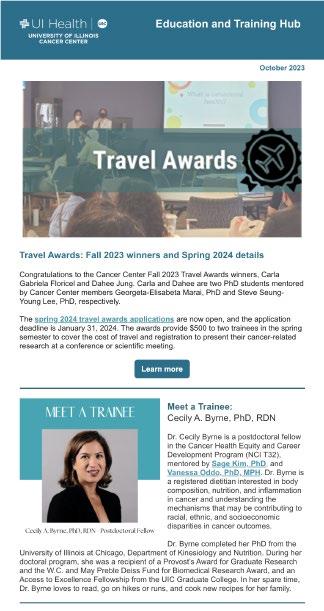
The CRTEC Team initiated a monthly trainee-specific newsletter to provide updates, deadlines and resources to over 450 trainee members and eligible students
Four students earned $500 each to present their cancer-related research projects at scientific meetings.
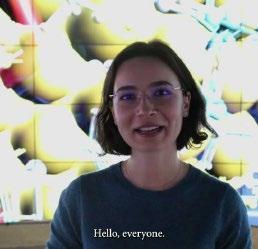
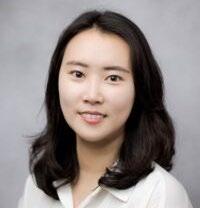

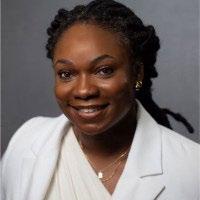
Carla Gabriela Floricel PhD Student
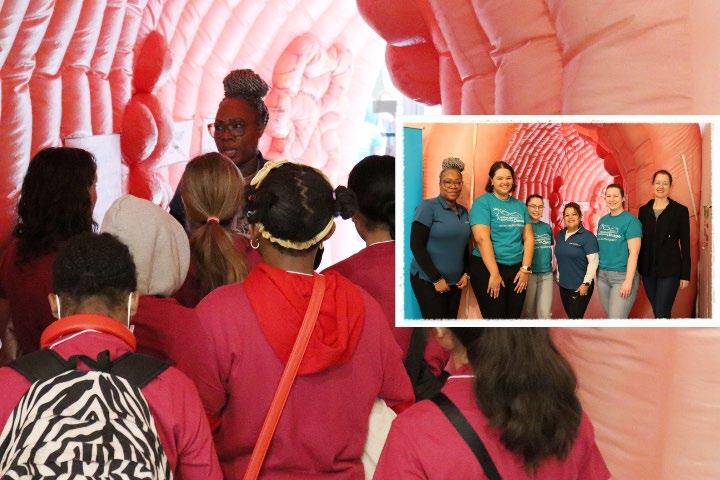
CRTEC and the Community Outreach and Engagement Team hosted the Expanding Your Horizons 2023 Conference for middle school girls interested in the world of science, technology, engineering and math (STEM). The team toured attendees through #CECIL the Giant Colon.
Dahee Jung PhD Student
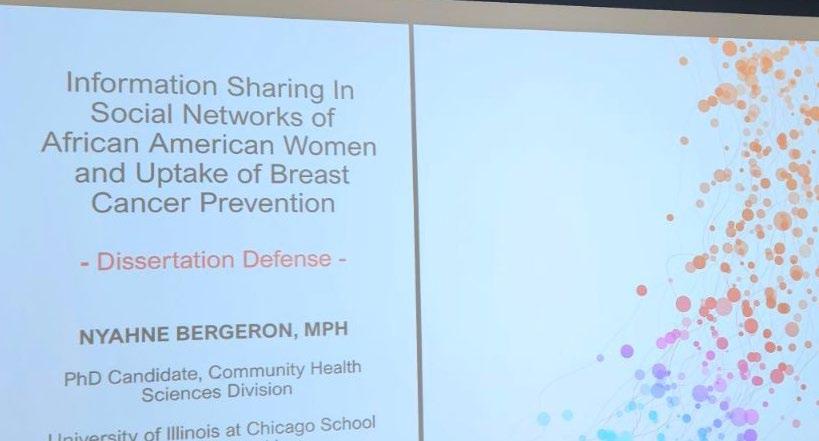

Shreya Deb PhD Student
Blessing Nwachukwu PhD student
Nyahne Bergeron, PhD, successfully defended her dissertation, “Information Sharing in the Social Networks of African American Women and Uptake of Breast Cancer Prevention,” and has been accepted to the Cancer Prevention Fellowship Program (CPFP) at the NCI for postdoctoral training.
The DICR Internship, through funding from the American Cancer Society, is a 10-week summer program that trains and mentors underrepresented minority undergraduate students interested in careers focusing on cancer research and other health professions. Eight students participated in the program in 2023.
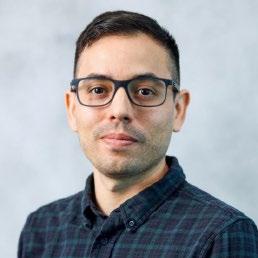
Natalicio H. Serrano, PhD, MPH, a former postdoctoral fellow of the UIC Cancer Health Equity and Career Development Program (CECDP), NCI T32CA057699, was welcomed to The University of North Carolina at Chapel Hill (UNC) Gillings School of Global Public Health as an Assistant Professor in the Department of Health Behavior.
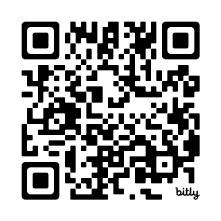
LEARN MORE ABOUT DICR HERE
SUMMER PROGRAMS BY THE NUMBERS
“The mentorship and countless professional development opportunities I received while at UIC have allowed me to thrive as a postdoctoral fellow. I have grown as an independent investigator working towards equitable and sustainable strategies for cancer prevention, and I am excited for this next phase of my career!”
Monet Jones, MPH, MSW, LSW, a Research Specialist with the Illinois Cancer Health Equity Research (I-CHER) Center at the University of Illinois Cancer Center, speaking to the 2023 cohort of Cancer Center summer students to share the profound impact pipeline programs can have on their lives like they did on her academic and early-career journey.
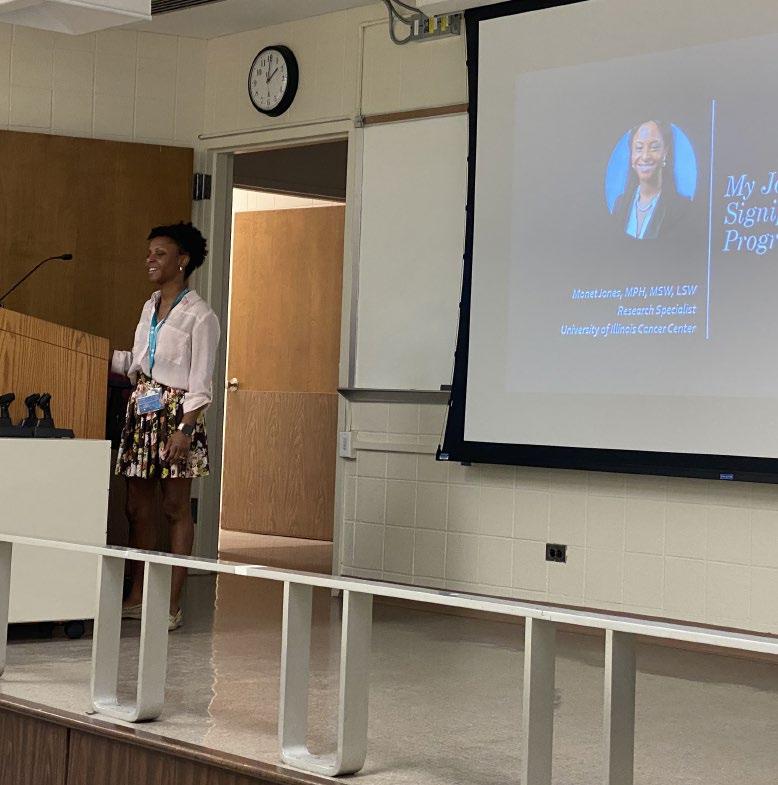
The CRTEC team hosted a research symposium that highlighted the work of high school and undergraduate students in cancerresearch focused summer programs. Nearly 30 Cancer Center members mentored students.
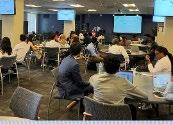
Cancer Health Equity Summer Scholars (CHESS)

17
HIGH SCHOOL STUDENTS 79% FROM UNDERREPRESENTED MINORITY GROUPS

DIVERSITY IN CANCER RESEARCH INTERNSHIP PROGRAM
27 UNDERGRADUATE STUDENTS 74% FROM UNDERREPRESENTED MINORITY GROUPS
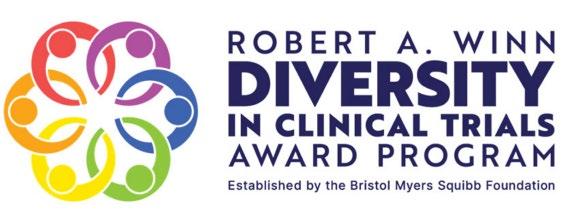
CANCER CENTER JOINS 100% OF PARTICIPANTS FROM UNDERREPRESENTED MINORITY GROUPS
AGREED THAT THE PROGRAM INCREASED THEIR RESEARCH SKILLS 100%
FELT THEIR KNOWLEDGE OF CANCER AND HEALTH DISPARITIES INCREASED
The research enterprise at the University of Illinois Cancer Center is committed to bringing scientific discoveries from laboratories to the diverse communities we serve so that the impact of our research to prevent, screen and treat cancer will reduce cancer health disparities throughout Illinois and beyond.
More than 260 Cancer Center members are spread across the University of Illinois Chicago (UIC), which ranks among the top National Institutes of Health-funded Minority Serving Institutions, and two regional UIC health sciences campuses in Rockford and Peoria.

With expertise in basic sciences, translational and clinical research, and population health, our members take a multidisciplinary approach to solving the unique cancer challenges faced by our communities in early detection, cancer care and survivorship. Our members are scientifically aligned with three research programs (Cancer Biology, Translational Oncology and Cancer Prevention and Control), and they are supported by six cancerfocused shared resources.
The Cancer Center developed its unique “Community to Bench” foundational model to maximize input from communities. The model is specifically designed to make communities the bedrock from which evidence-based, cutting-edge research is driven based on the stated needs of communities. With an evidence-based approach to community engagement, the Cancer Center aims to identify those needs and develop pragmatic research and patient navigation to improve health outcomes for all of our patients.
The University of Illinois Cancer Center and the UI Health Mile Square Health Center will enroll patients 50 years and older of average health in the PATHFINDER 2 trial led by the biotechnology company GRAIL.
The Cancer Center brings to the study a uniquely diverse patient population where nearly four out of five participants in clinical trials come from underrepresented groups. The trial also offers patients at Mile Square, a federally qualified health center providing primary care to underserved populations, the opportunity for screening with this new multi-cancer detection technology.
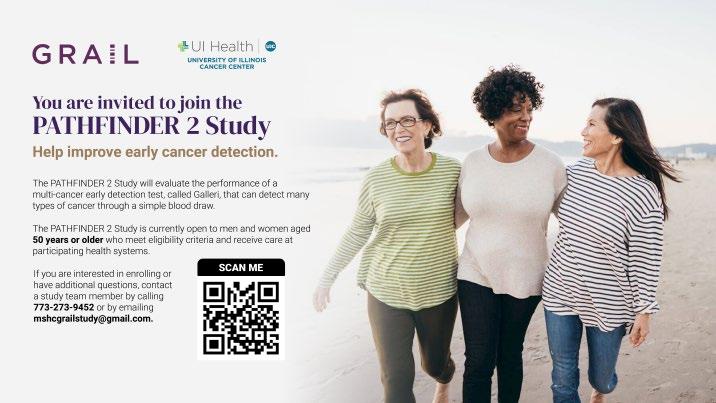
“We are giving economically vulnerable racial and ethnic minorities access to cuttingedge diagnostics that they wouldn’t have access to otherwise.”
Darlene Kitterman ADMINISTRATIVE DIRECTOR,
BY THE NUMBERS
263 CANCER CENTER MEMBERS
123 FULL MEMBERS
$31M TOTAL RESEARCH FUNDING
786
CANCER RELATED PUBLICATIONS (FULL MEMBERS 2019-2023)
6 CANCER-FOCUSED SHARED RESOURCES
129 INTERVENTIONAL TRIALS OPEN FOR ENROLLMENT
133 TREATMENT ACCRUALS
33
INVESTIGATORINITIATED TRIALS OPEN FOR ENROLLMENT
10
SCREENING TRIALS TO BETTER DETECT CANCER EARLY
250%
INCREASE IN INTERVENTIONAL TRIAL ACCRUALS IN 2023
80%
TREATMENT CLINICAL TRIAL PARTICIPANTS ARE MINORITIES
The University of Illinois Cancer Center is unique in its integration of cancer prevention and genetics programs into primary care within the UI Health network of FQHCs known as the Mile Square Health Center, thus ensuring these crucial services reach the most underresourced patients.
The Cancer Center is committed to cancer prevention through a robust clinical cancer risk and genetics program, supported by key quality improvement and research initiatives at our Mile Square FQHCs.
MiFamCan
A systemwide quality improvement project designed to enhance access to and use of cancer genetic services among minority populations. This is achieved by integrating universal hereditary cancer risk assessments into Mile Square FQHCs, primary care clinics, mammography centers and other UI Health clinical sites.
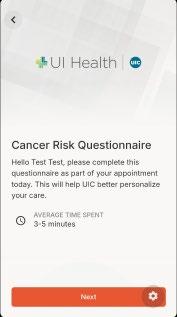
A research initiative aimed at developing and testing new models of care and implementing solutions for integrating cancer genetic services into primary care at FQHCs.
Dedicated to serving our Mile Square FQHC primary care patients who are eligible for genetic testing or at higher risk for cancer by developing personalized cancer risk management plans.
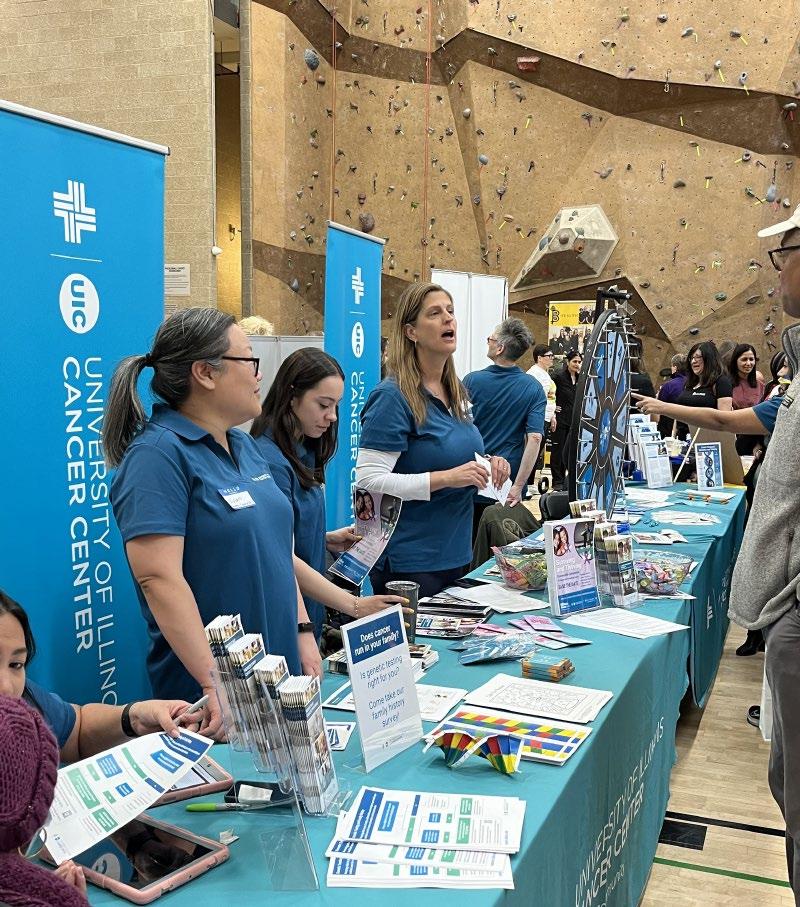
A research initiative focused on enhancing access to cancer genetic services for underserved populations in Chicago. In 2023, we assessed needs across 20 FQHCs and 19 academic centers to identify gaps in these services throughout the Chicagoland area.


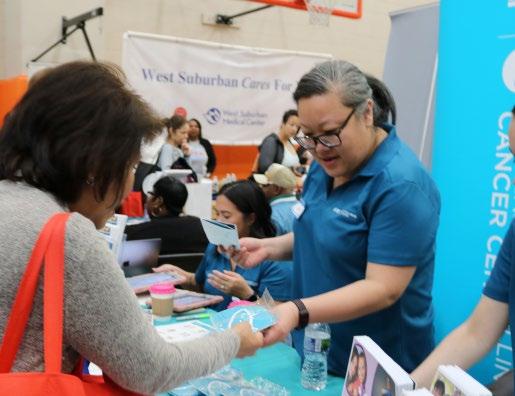
MIFAMCAN IN 2023 BY THE NUMBERS
2,206
PATIENTS COMPLETED HEREDITARY CANCER RISK ASSESSMENTS IN PRIMARY CARE
454
PATIENTS IDENTIFIED AS ELIGIBLE FOR CANCER GENETIC TESTING
THREEFOLD INCREASE IN REFERRALS FOR CANCER GENETIC COUNSELING
221
REFERRALS TO THE CANCER PREVENTION CLINIC FOR CANCER RISK MANAGEMENT
PATIENTS REACHED THROUGH MIFAMCAN ARE:
HEALTH LITERACY
The Cancer Center’s Survivorship Program at UI Health, embedded in the Mile Square Health Center FQHC network, offers personalized, compassionate cancer care to Chicagoland’s vulnerable populations, focusing on holistic well-being and a fulfilling life.
Coordinates care between the cancer specialist and primary care physician to ensure that all aspects of a cancer survivor’s health needs are being met.
Aims to establish a long term cohort of adult cancer patients seen in the Cancer Survivorship Clinic.
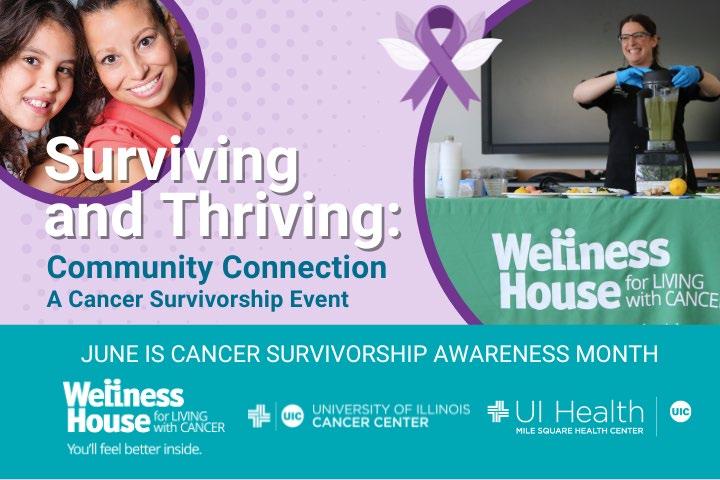
A community connection cancer survivorship event held annually at Mile Square Health Center during National Cancer Survivor Month in June.
Wellness House provides free programs and classes to help meet the emotional, physical and spiritual needs of cancer survivors and their families. In 2023, 331 program events were offered at UI Health and Mile Square Health Center.
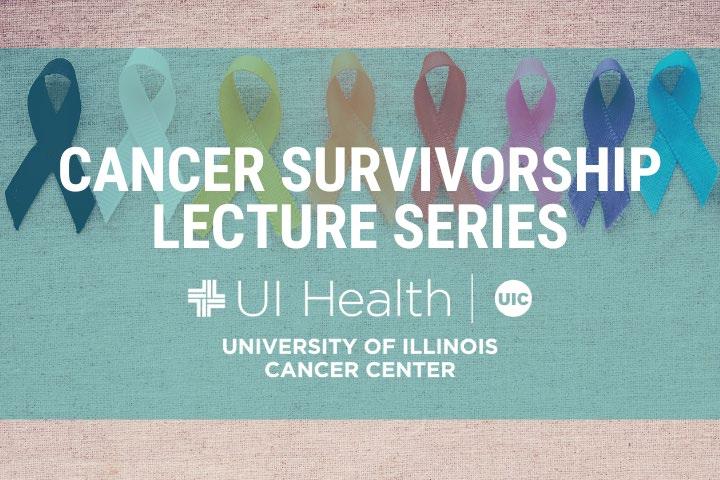
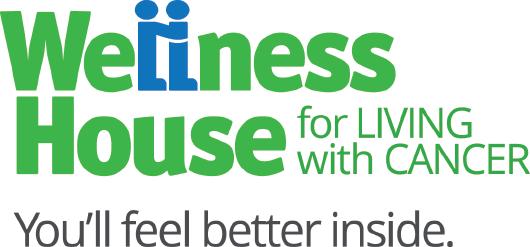
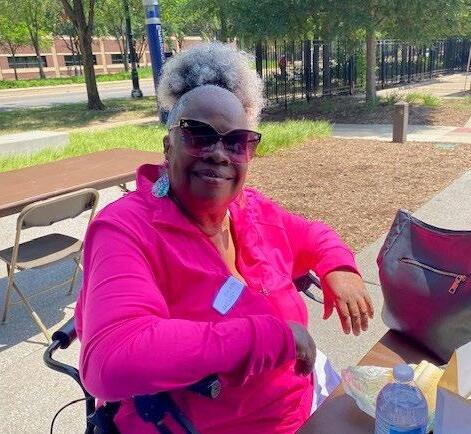
A monthly virtual, expert-led seminar on topics in cancer survivorship for healthcare providers and support staff.

CANCER SURVIVORSHIP BY THE NUMBERS
182
PATIENTS ENROLLED IN THE SURVIVORSHIP COHORT STUDY
130
REFERRALS TO THE CANCER SURVIVORSHIP CLINIC
60+ PROFESSIONALS/PROVIDER EDUCATED IN CANCER SURVIVORSHIP LECTURE SERIES
378
CANCER SURVIVORSHIP PATIENT VISITS CONDUCTED AT OUR FQHC
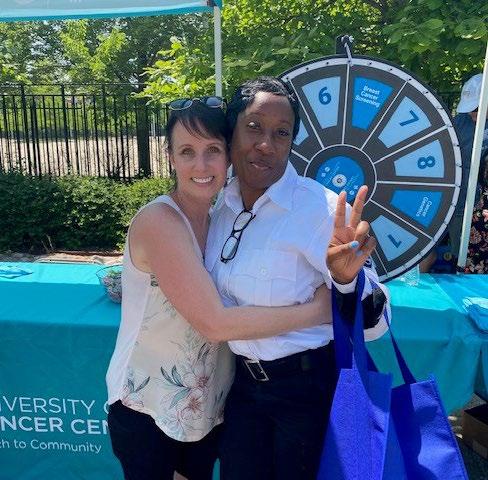

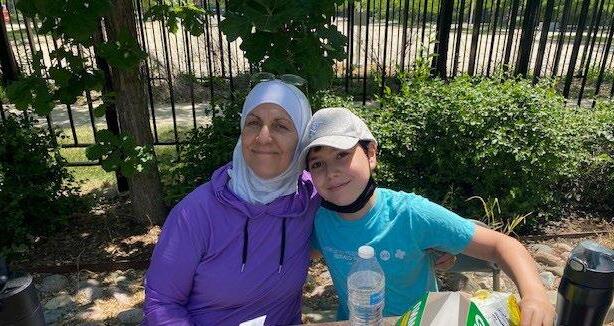
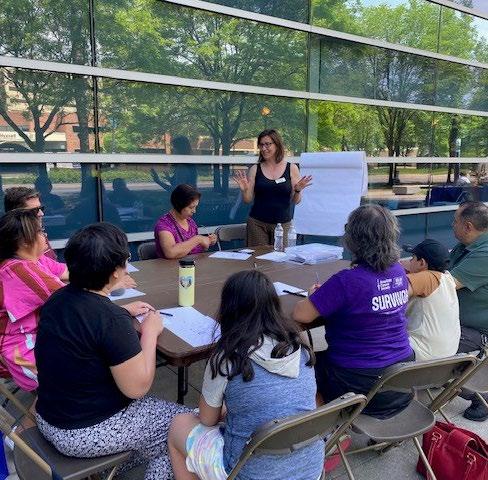
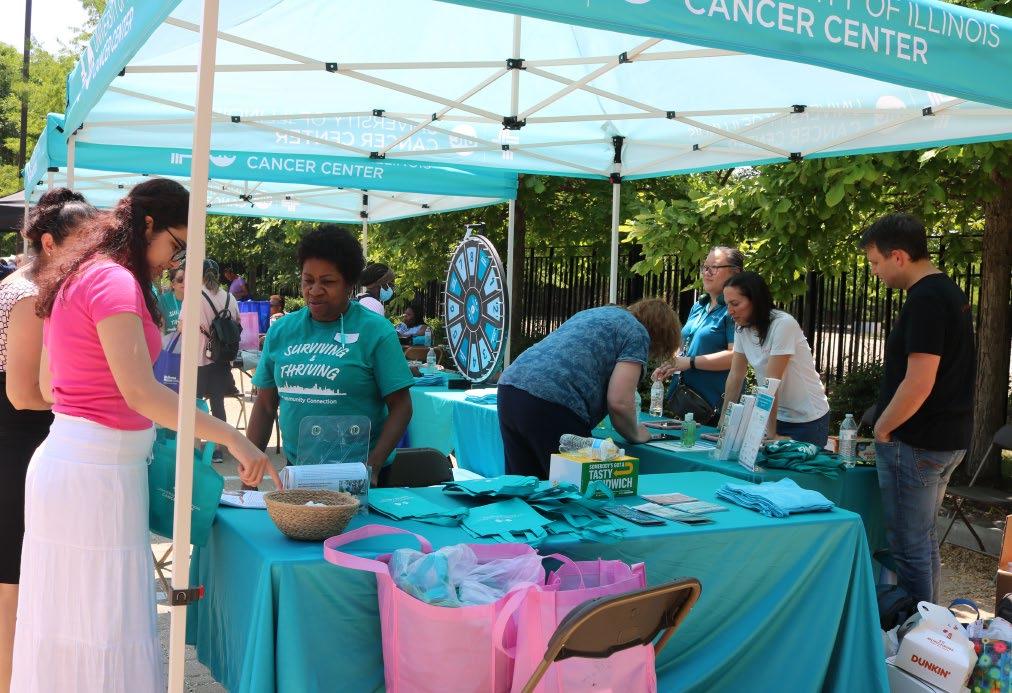
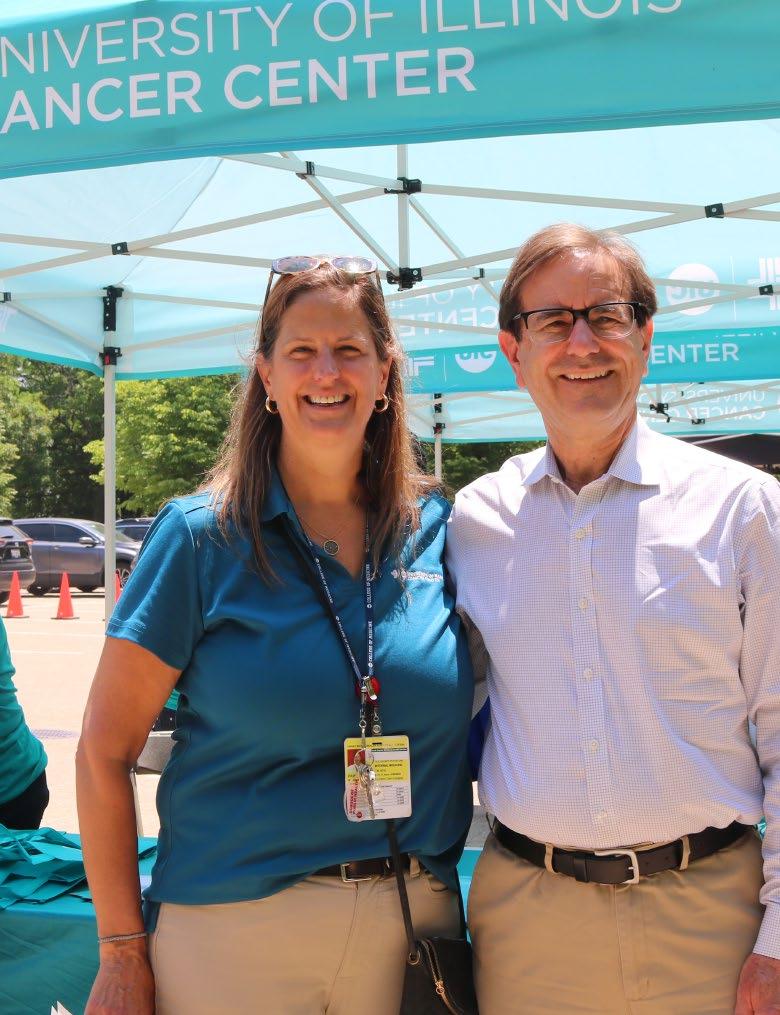

The Cancer Center has launched a five-year, $50 million philanthropic campaign to provide the next level of impact for cancer patients, and to close the cancer disparities gap in Chicago, Cook County and beyond.

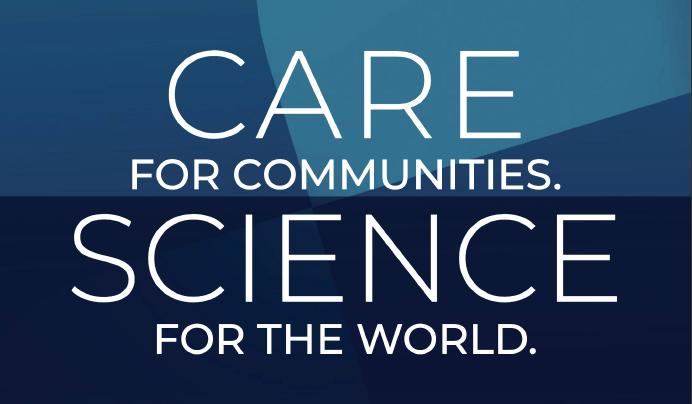
THE CAMPAIGN WILL HELP US:
• Change the face of cancer care by perfecting our model of equitable precision oncology and sharing our inclusive science with the world.
• Improve outcomes for thousands of patients in the communities we serve through enhanced care and education.
• Ensure our momentum by recruiting, retaining and training diverse, essential experts who will lead and share this work into the future.
Barbara Warnecke has generously established a fund to honor her late husband whose more than 40-year career was dedicated to eliminating inequities in cancer health outcomes.
The Richard B. Warnecke, PhD, Postdoctoral Fellowship in Cancer Health Disparities at the Cancer Center will continue his legacy of recruiting and mentoring exceptionally talented and diverse investigators.
The fellowship is a fitting tribute to Richard Warnecke, who was influential in launching the careers of many researchers who have followed in his footsteps to address health disparities. His research was foundational to the Cancer Center, where he served as Associate Director of the Population Sciences, Cancer Control and Education Program.
Warnecke Fellows will conduct cancer disparities research under the auspices of a mentor, laying the groundwork for successful and impactful careers in this field. Support from the fund will afford opportunities such as mentorship, protected research time, training and career development.

EXPLORE THE CAMPAIGN
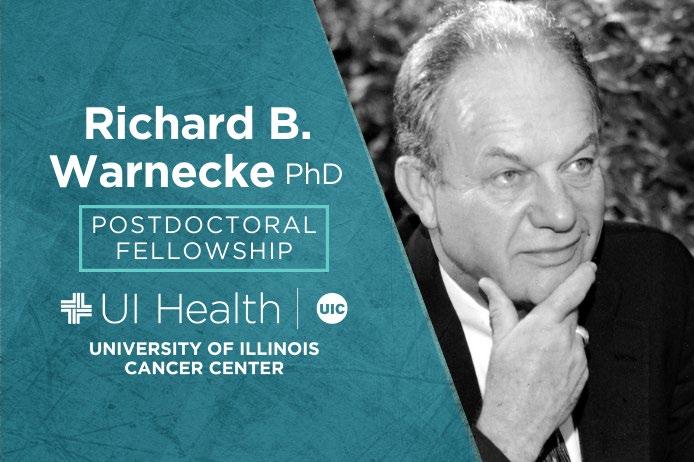
When you make a gift to the University of Illinois Cancer Center, your support has a tremendous impact on cancer research and patient outcomes.
With your help, we are committed to ensuring that our research and Cancer Center activities are aligned with the needs and priorities of community stakeholders including patients, survivors, families and advocates.
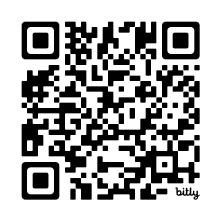
MAKE A DONATION
